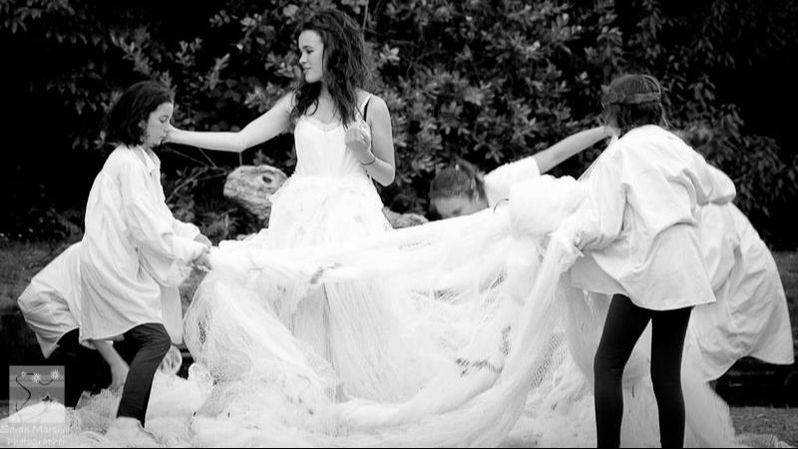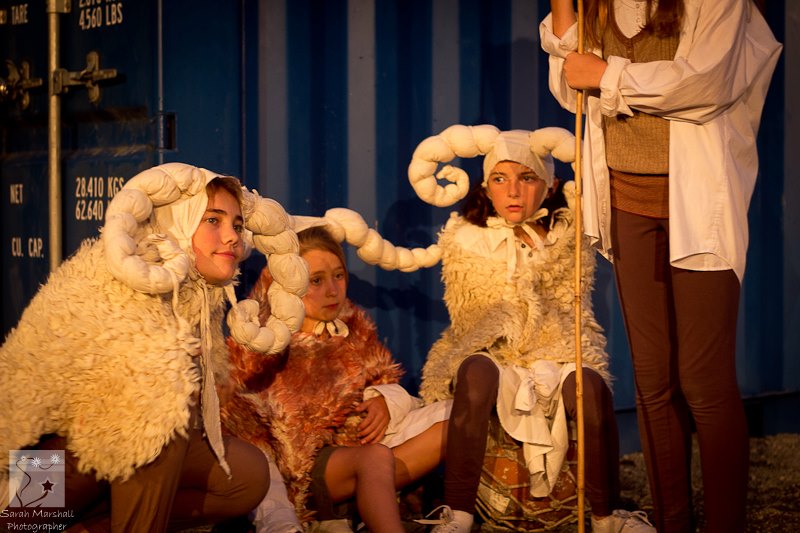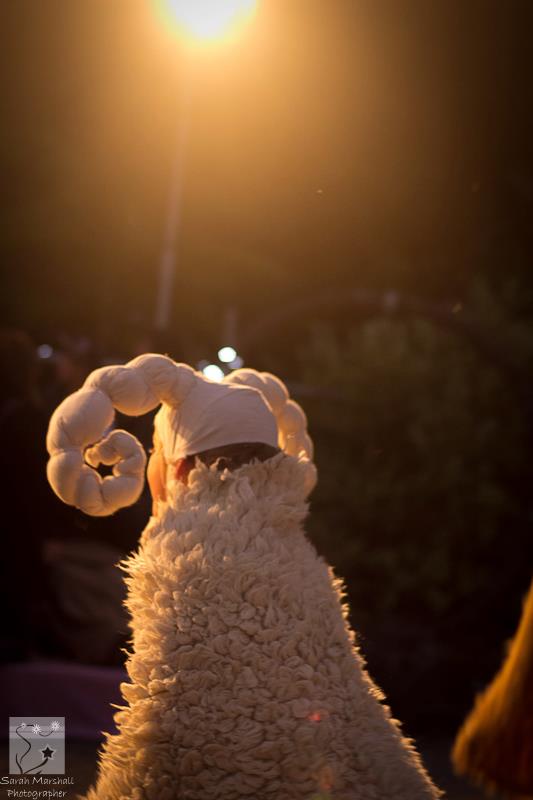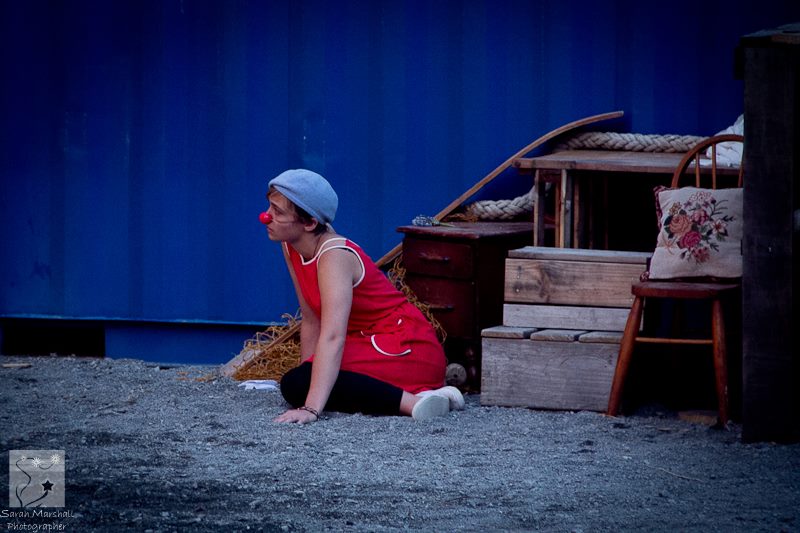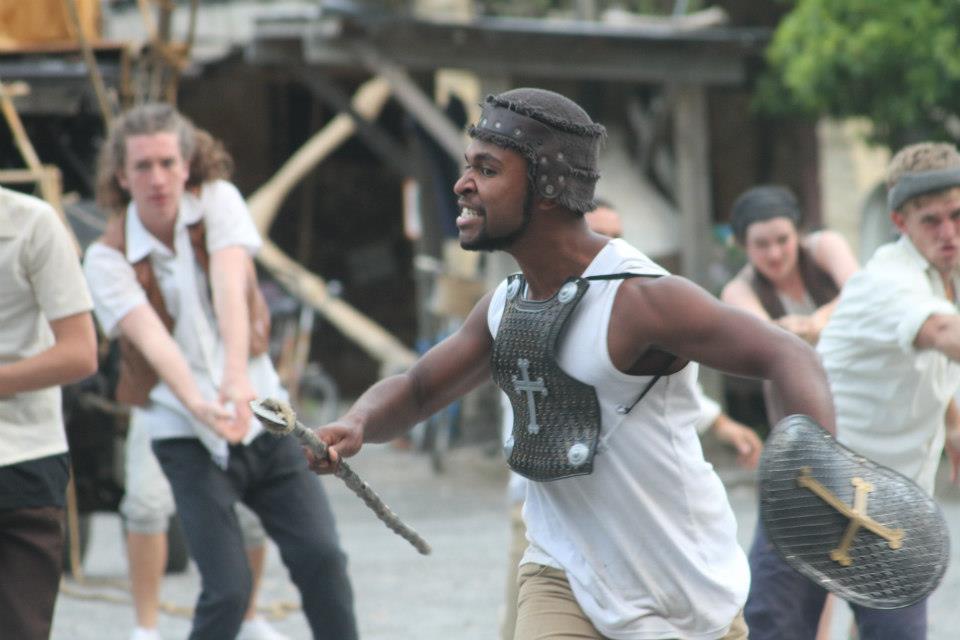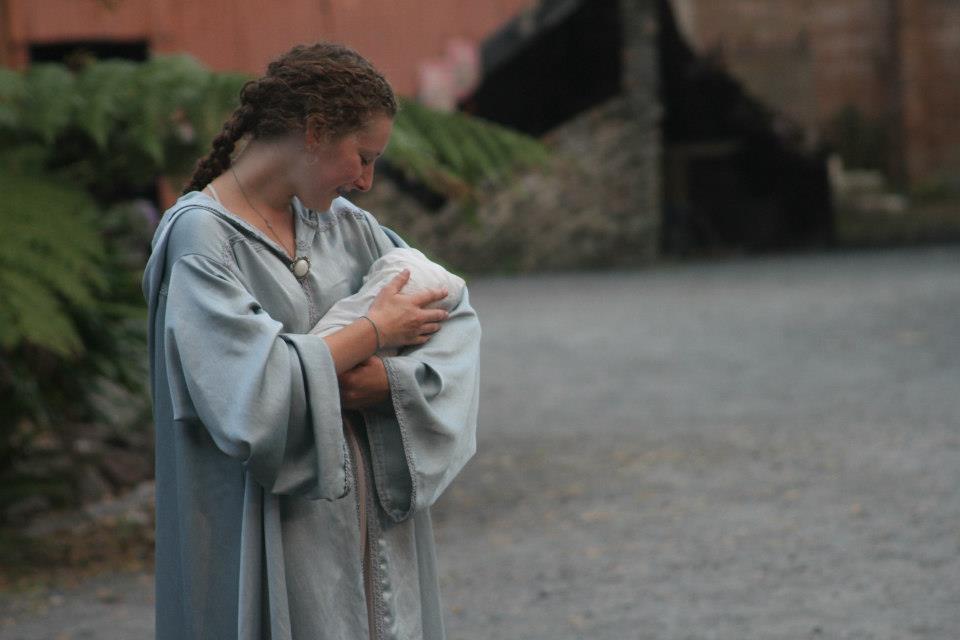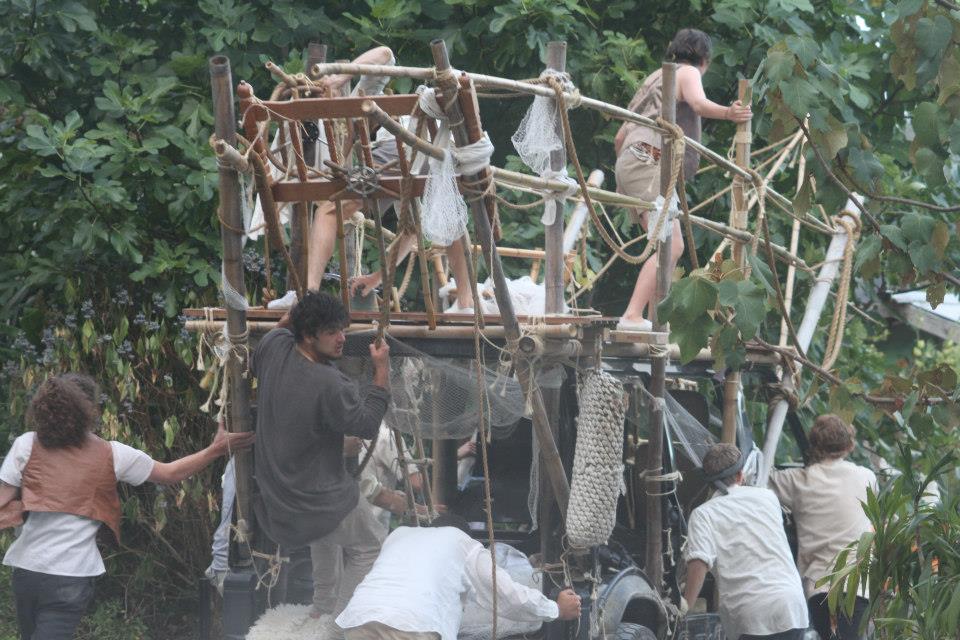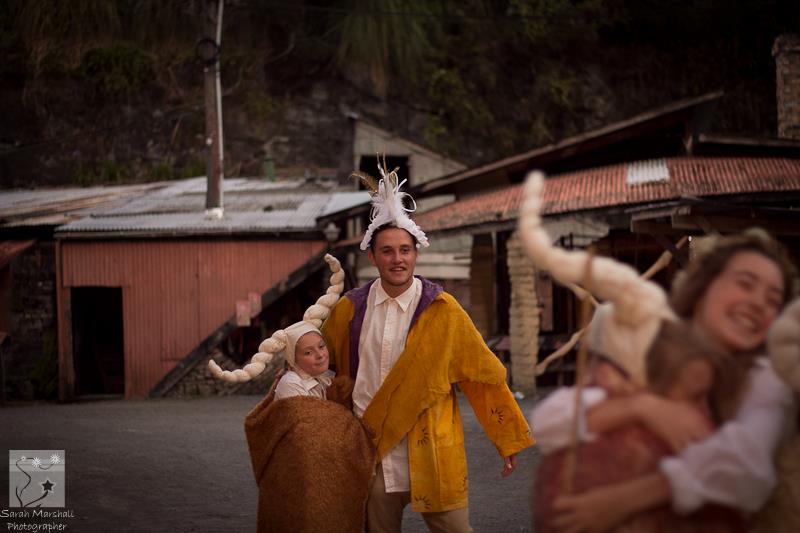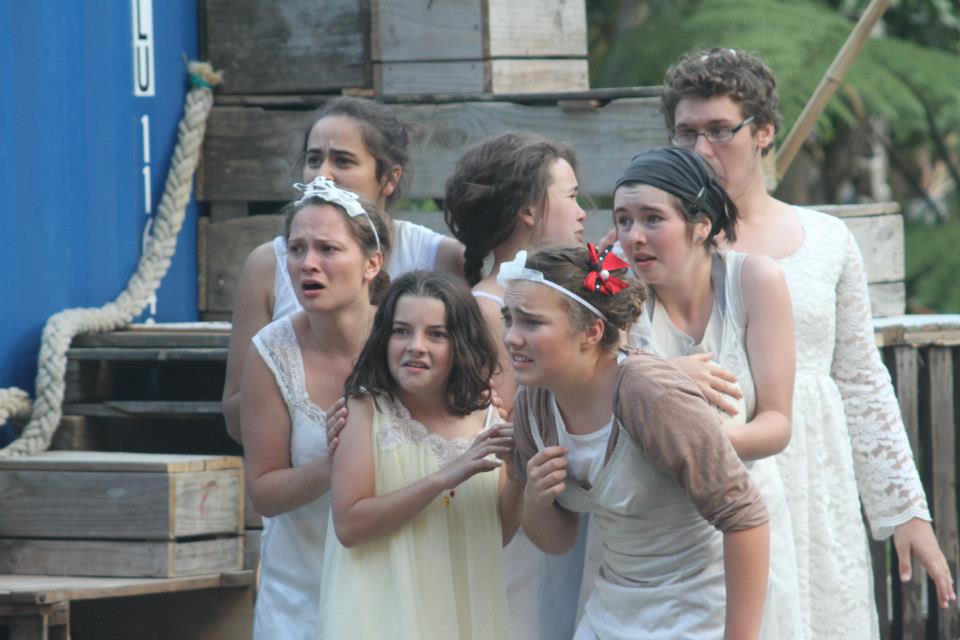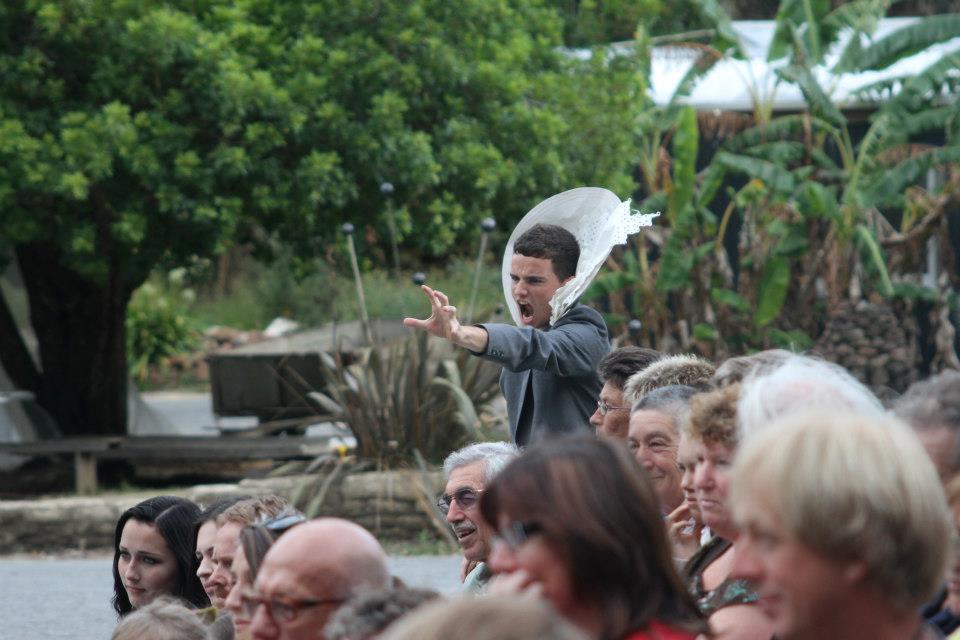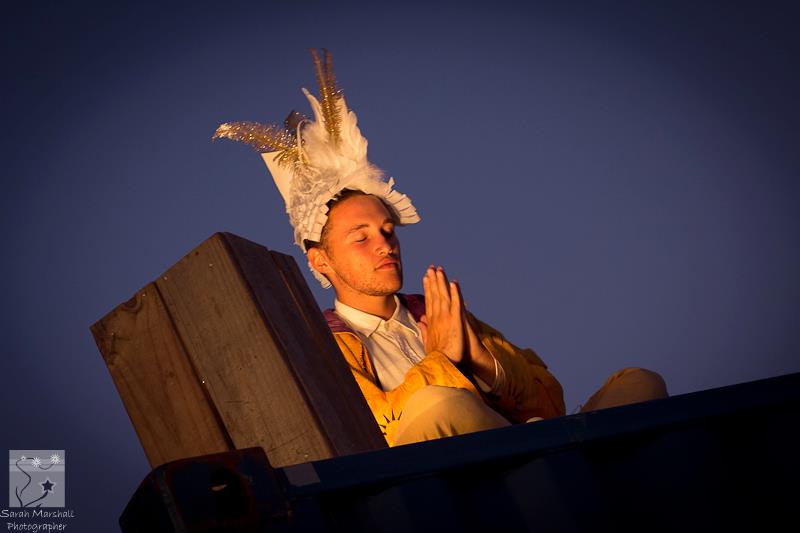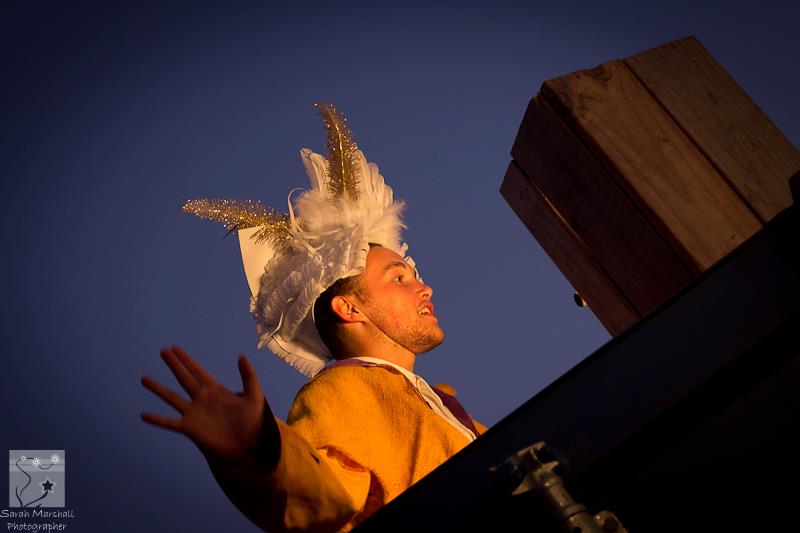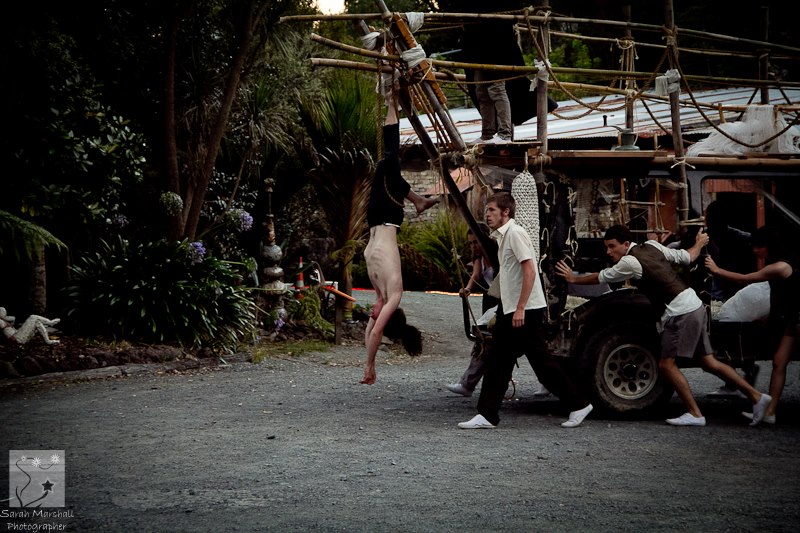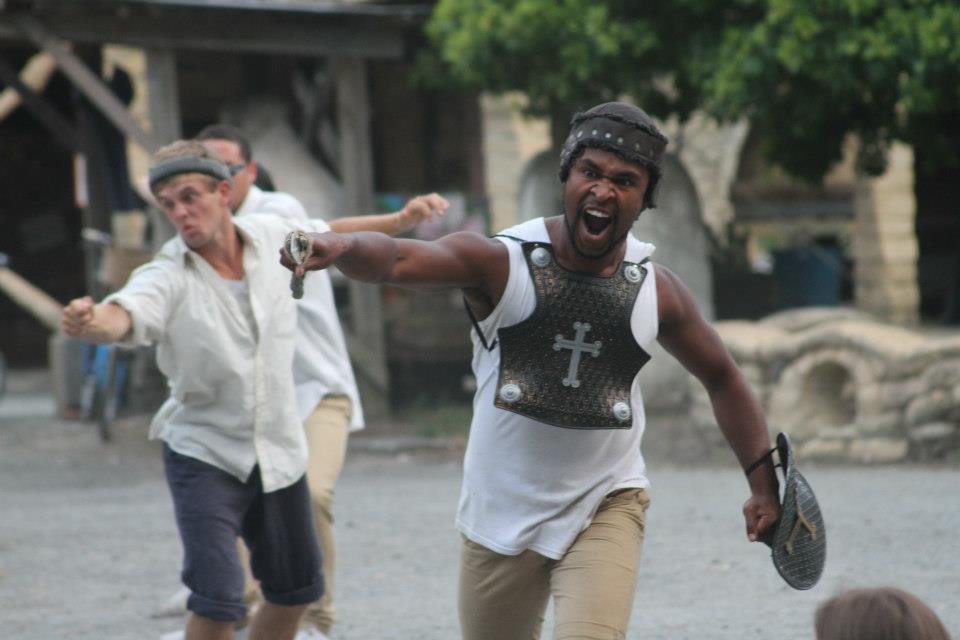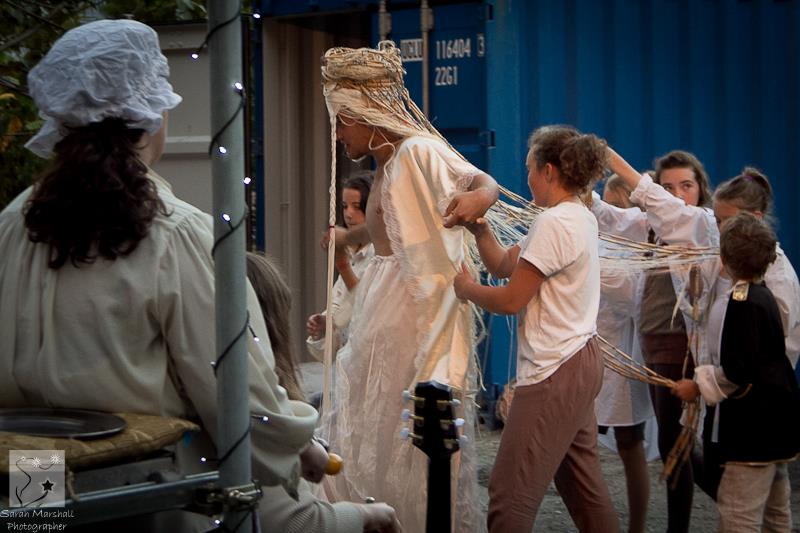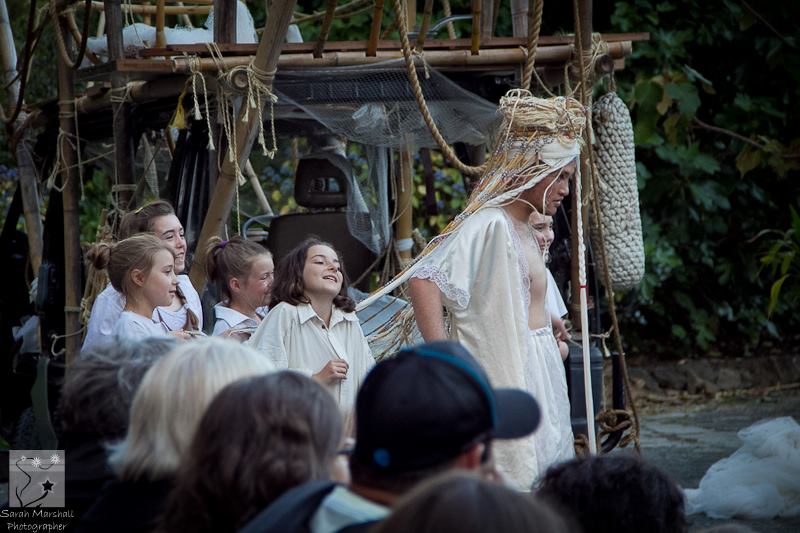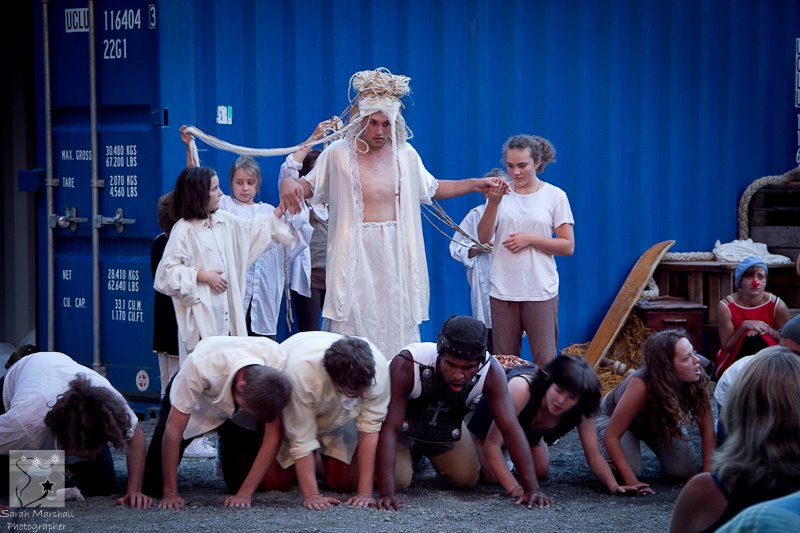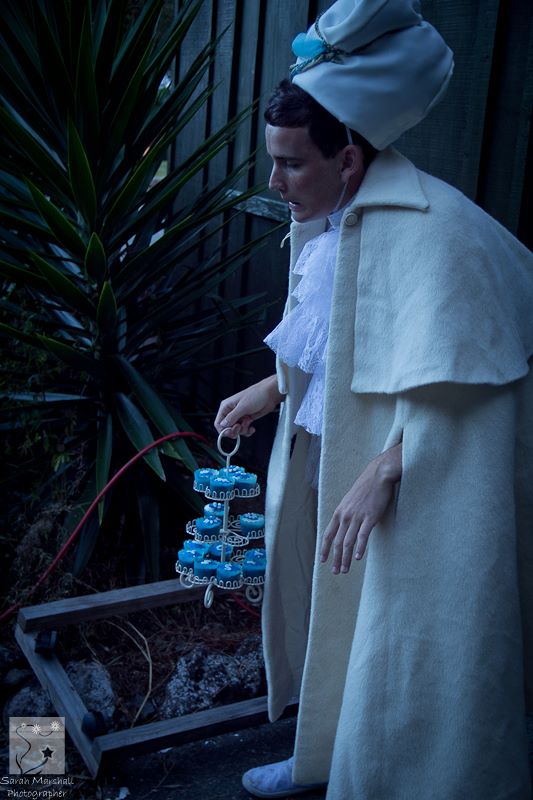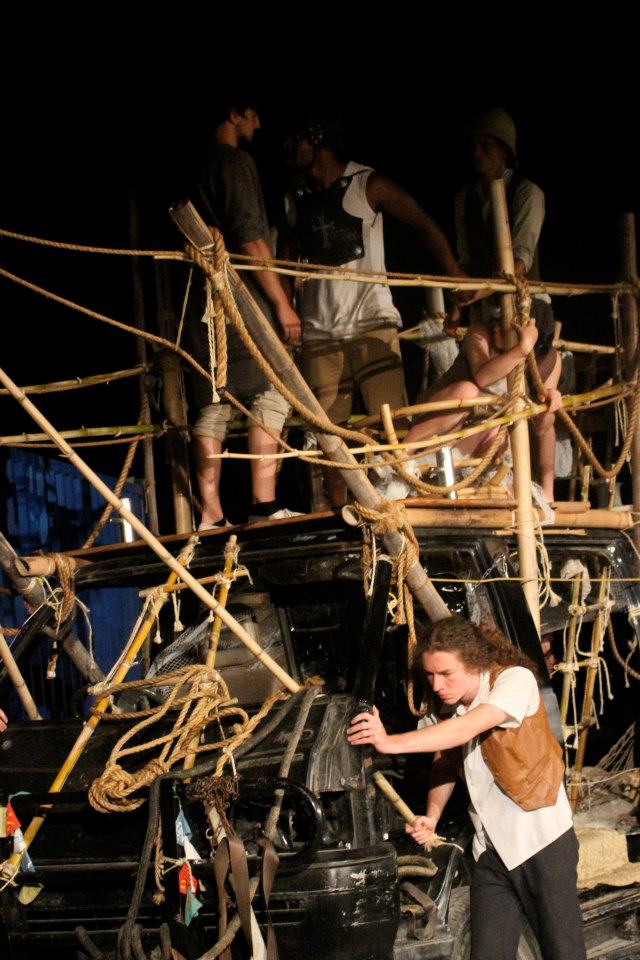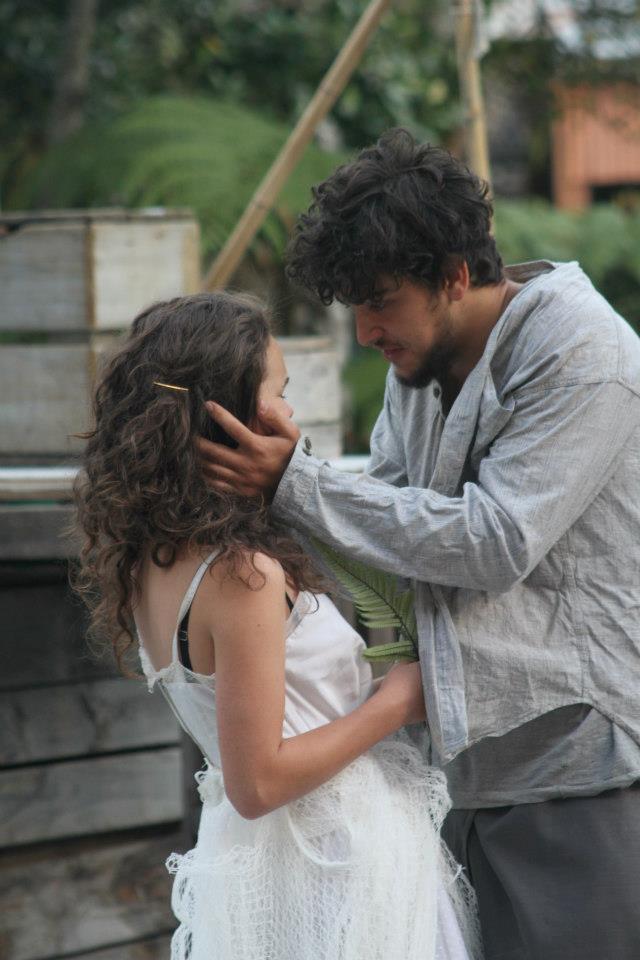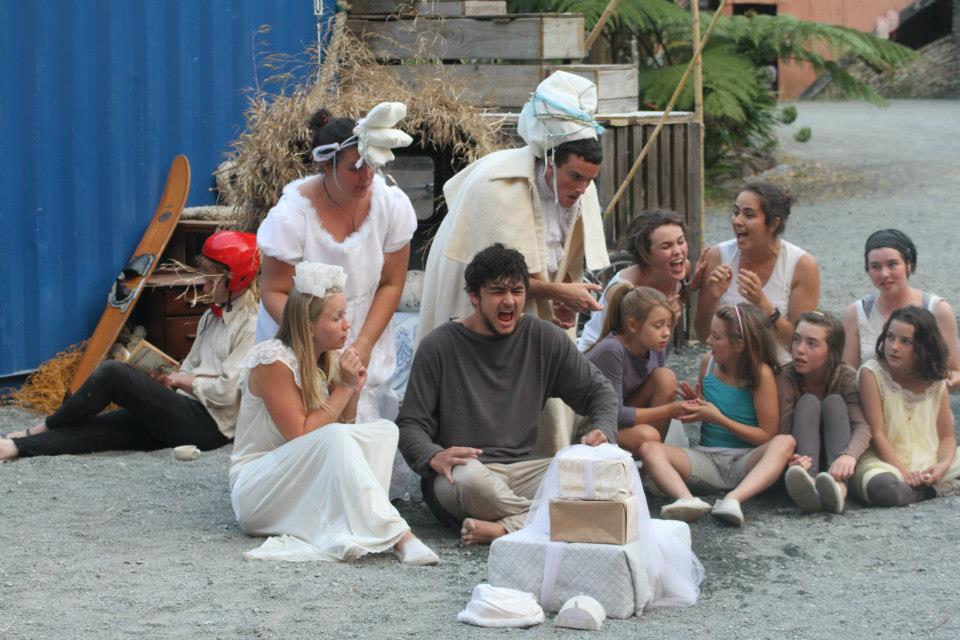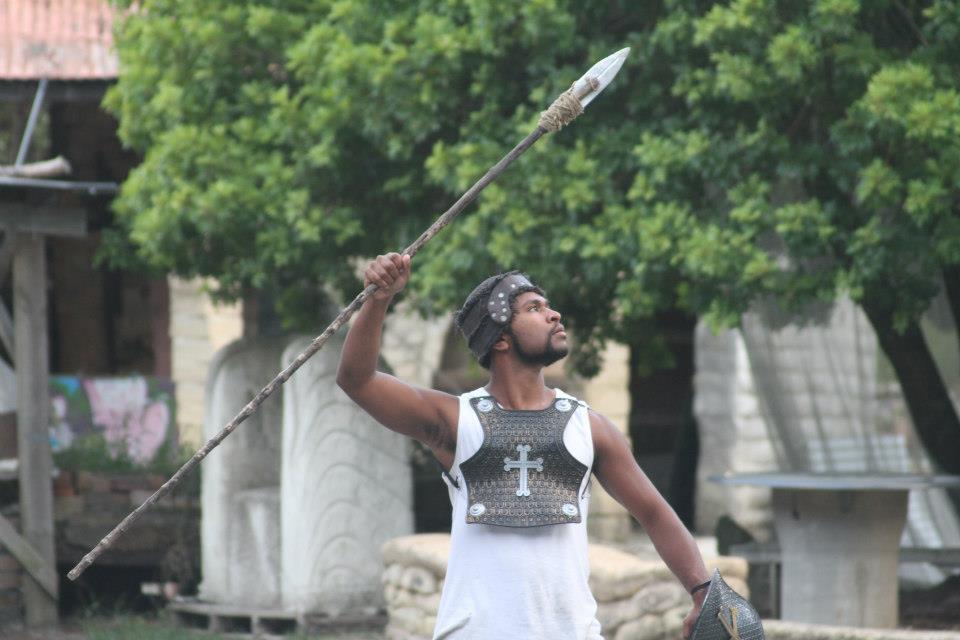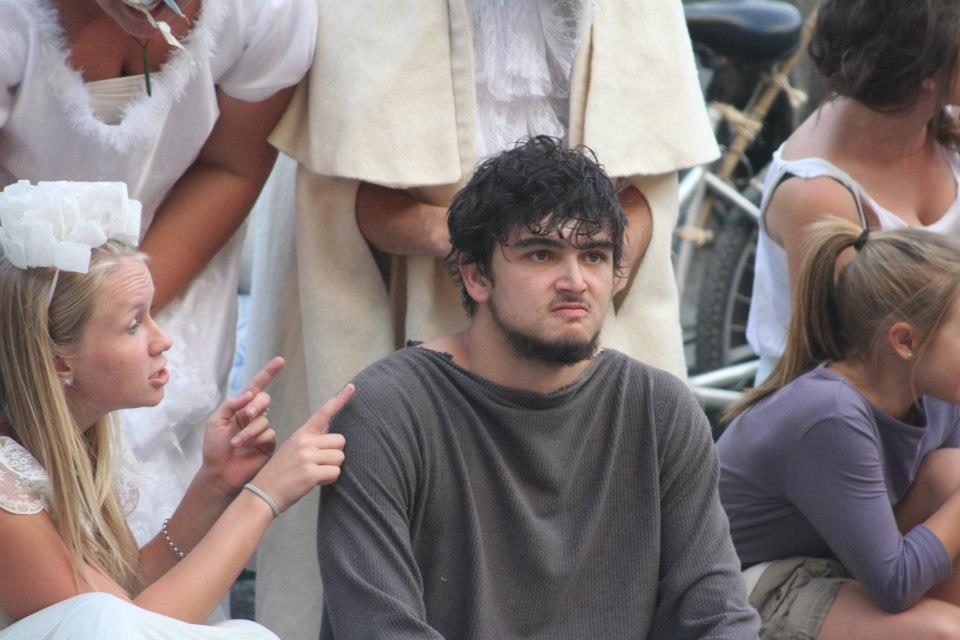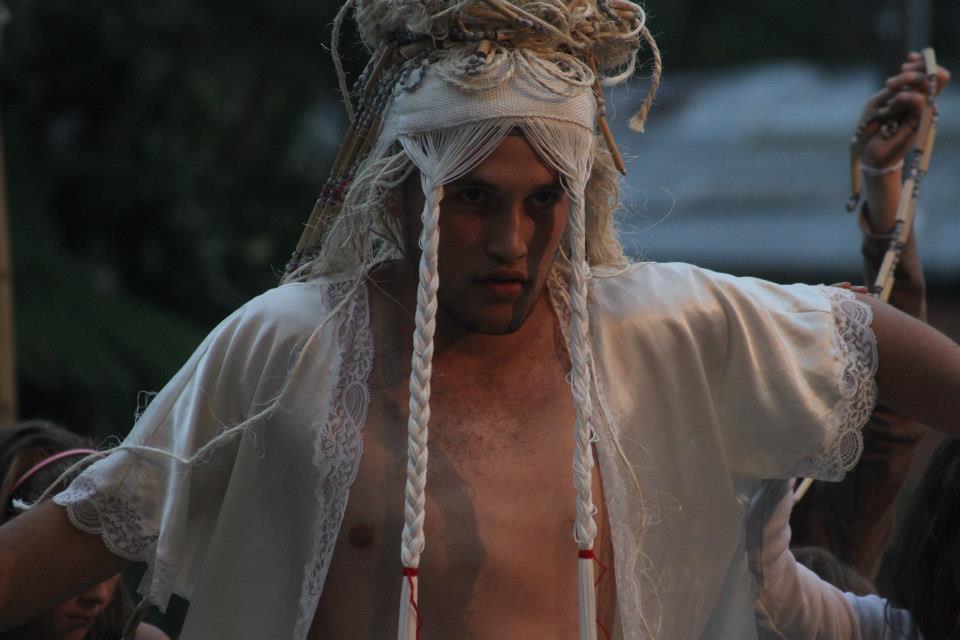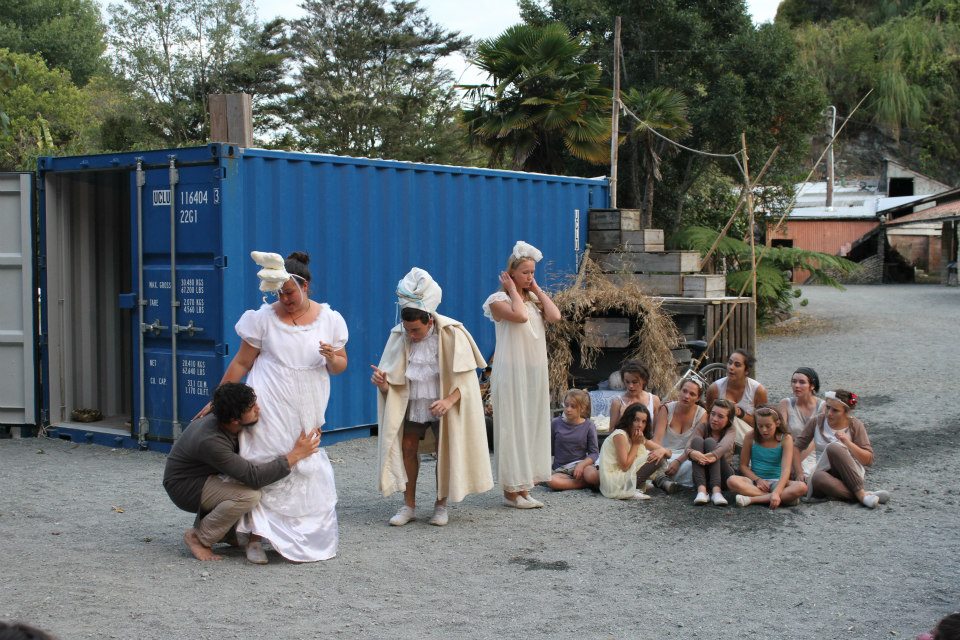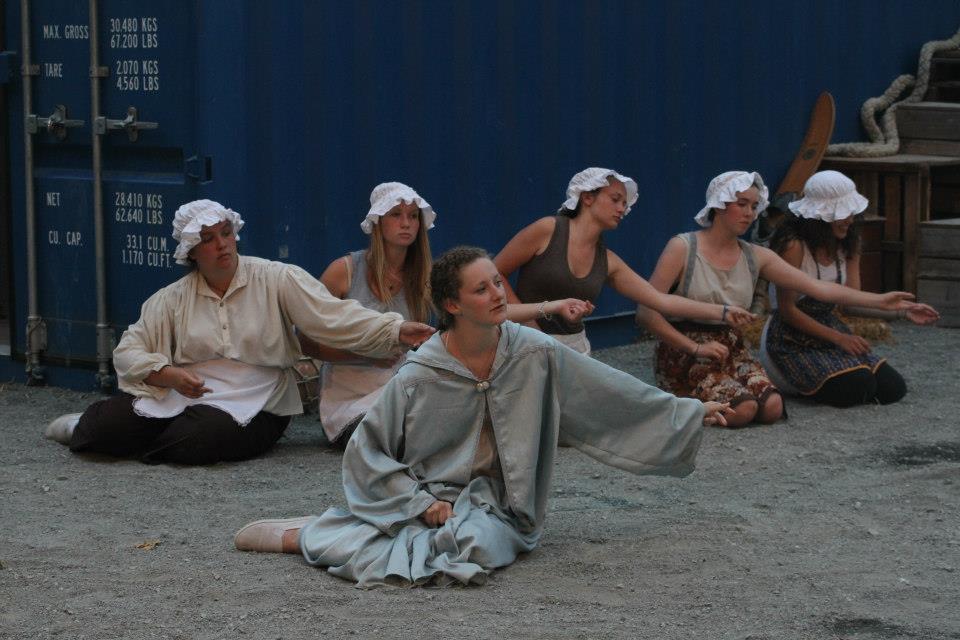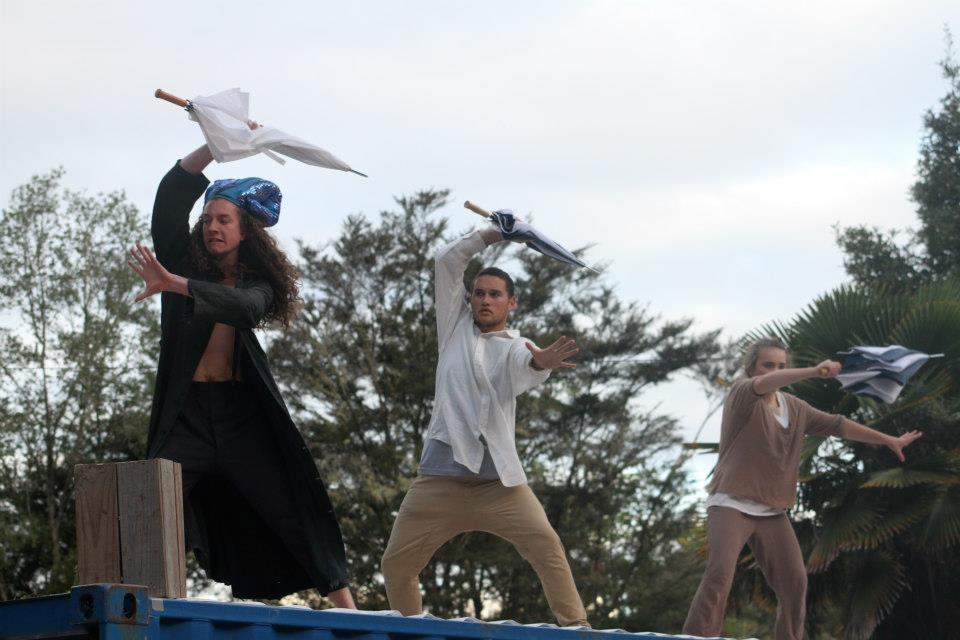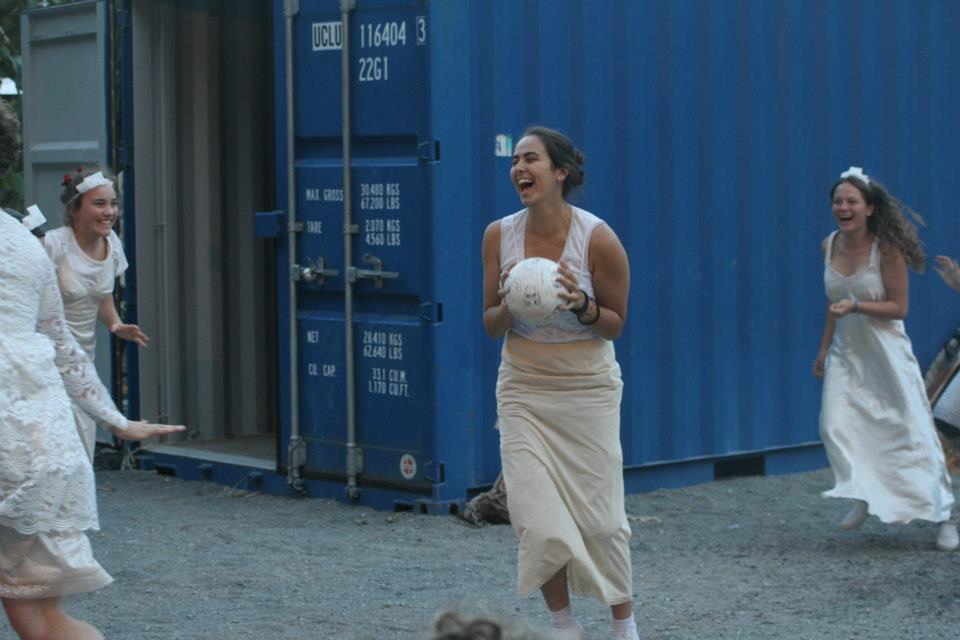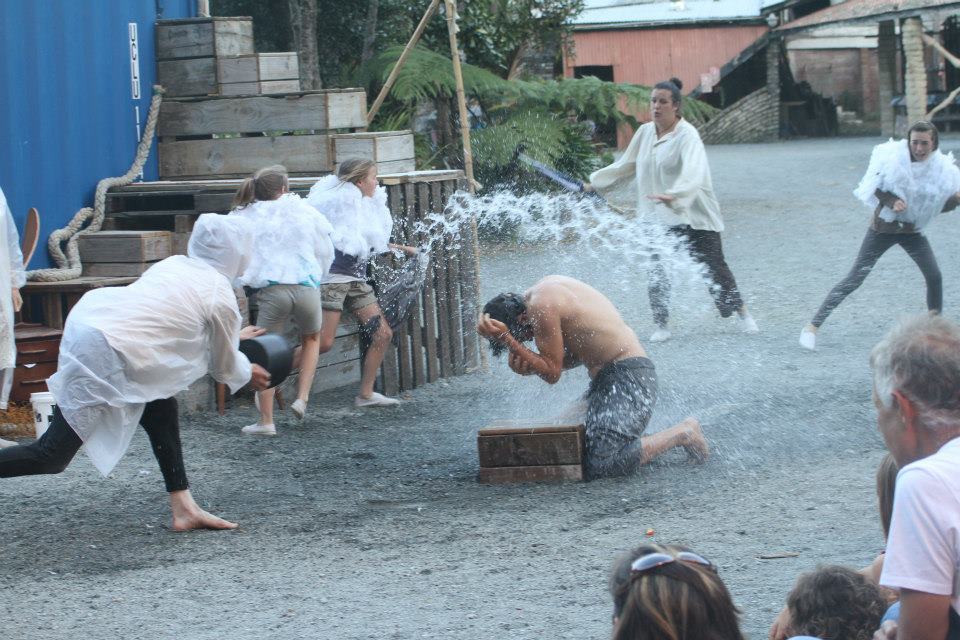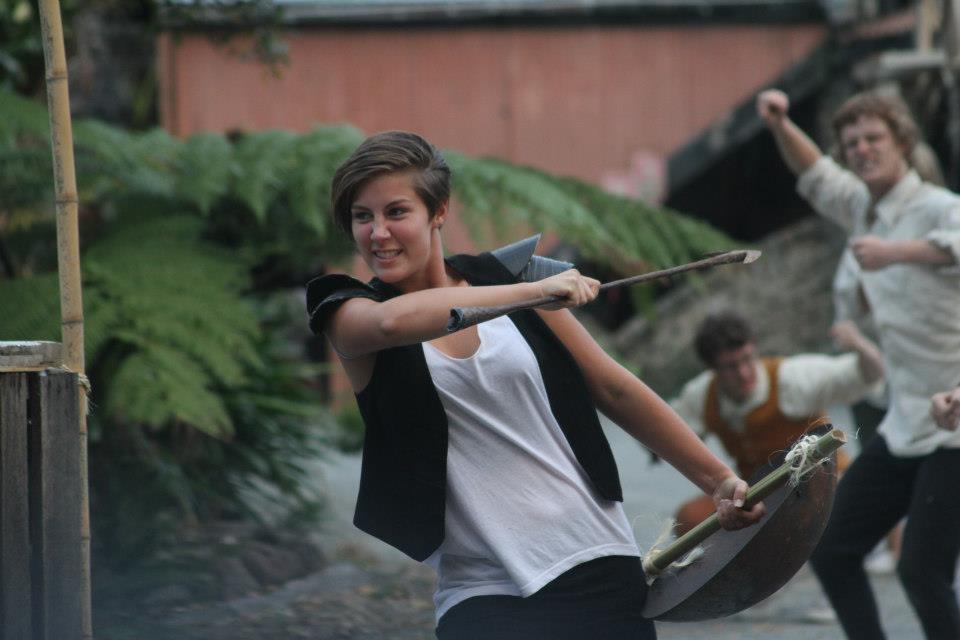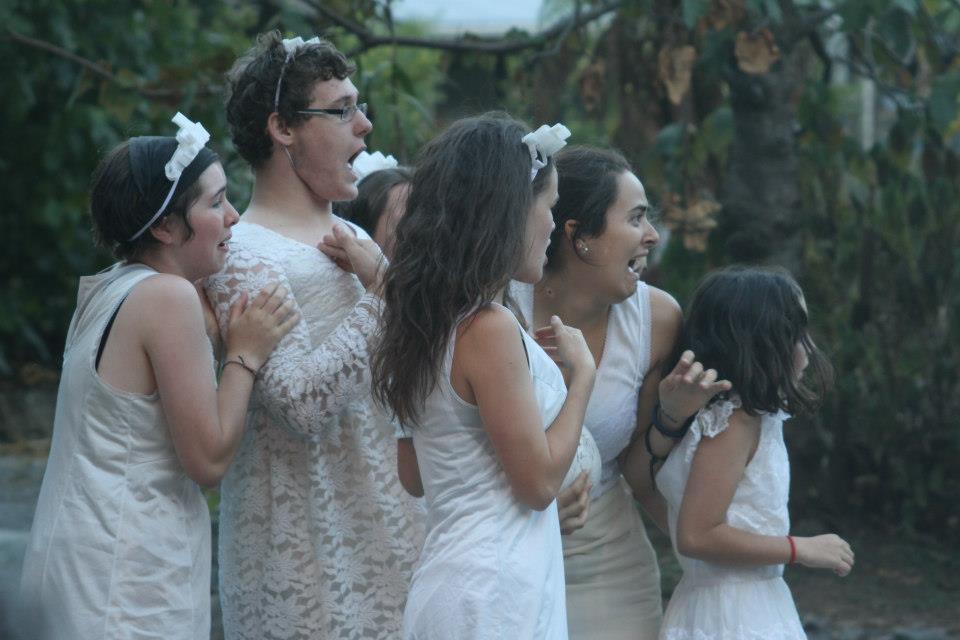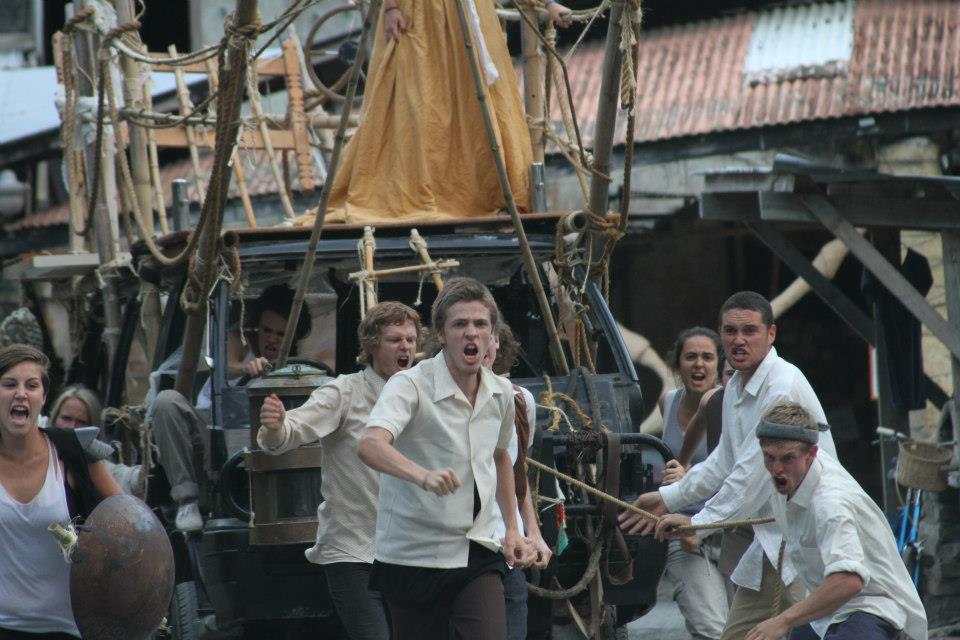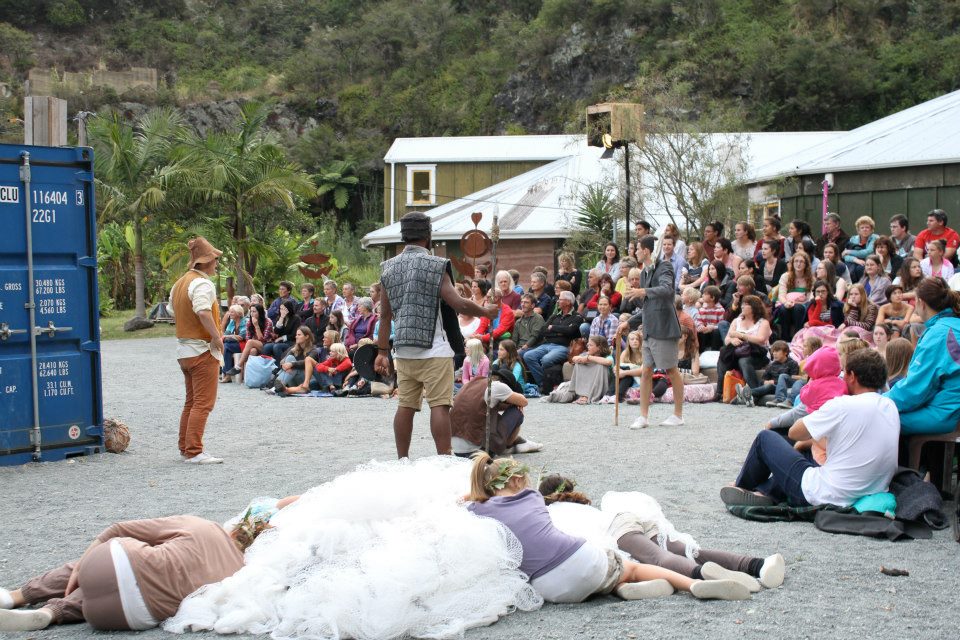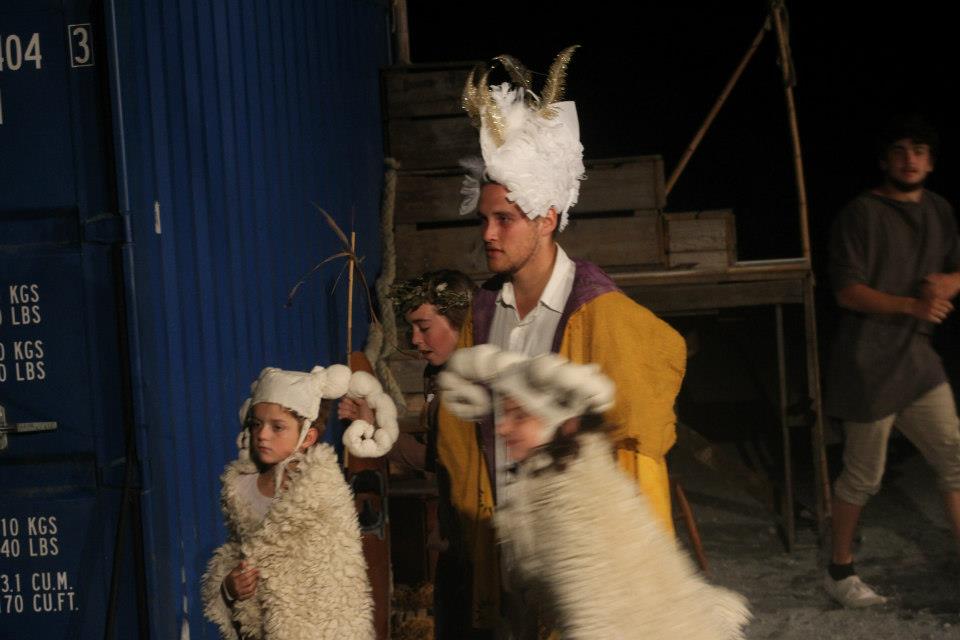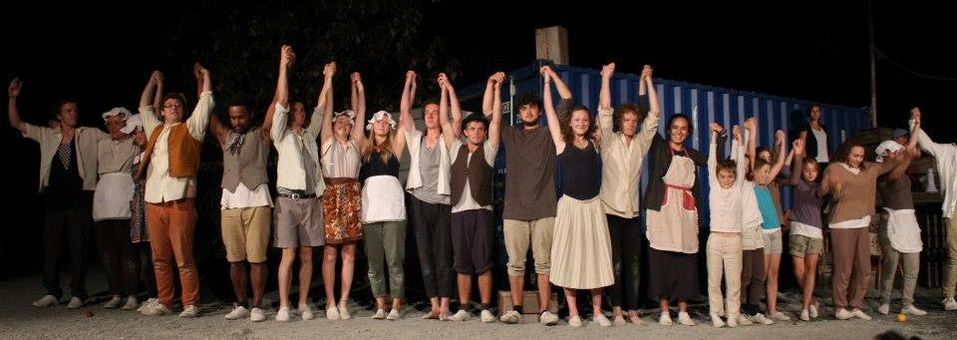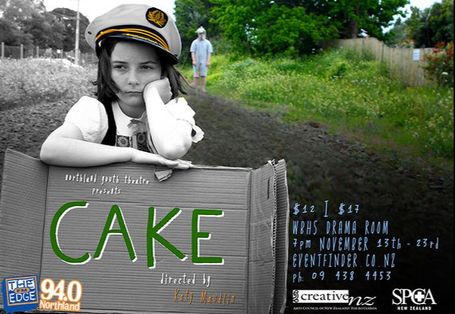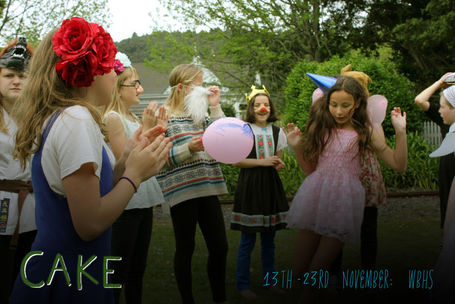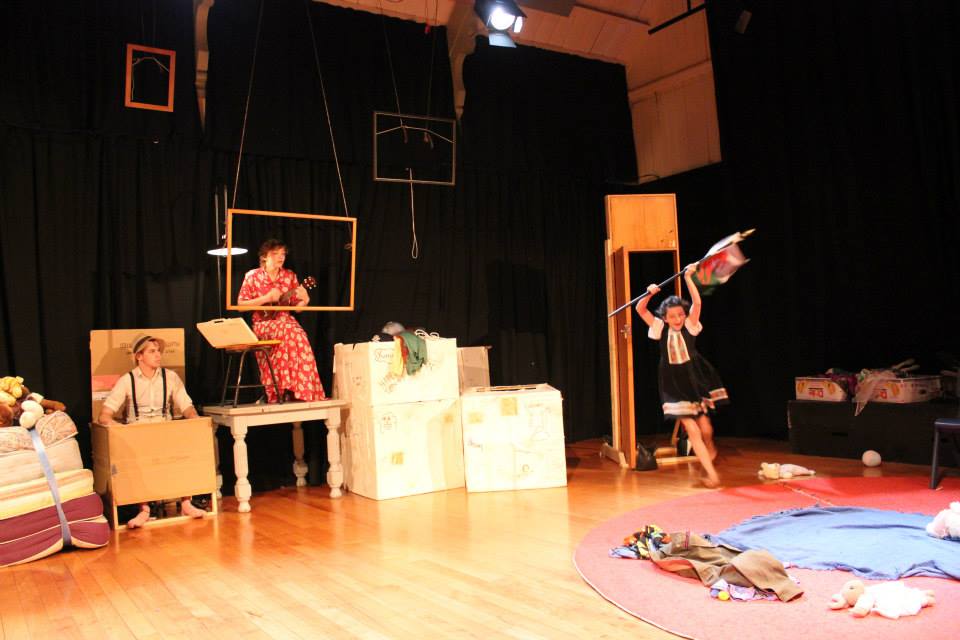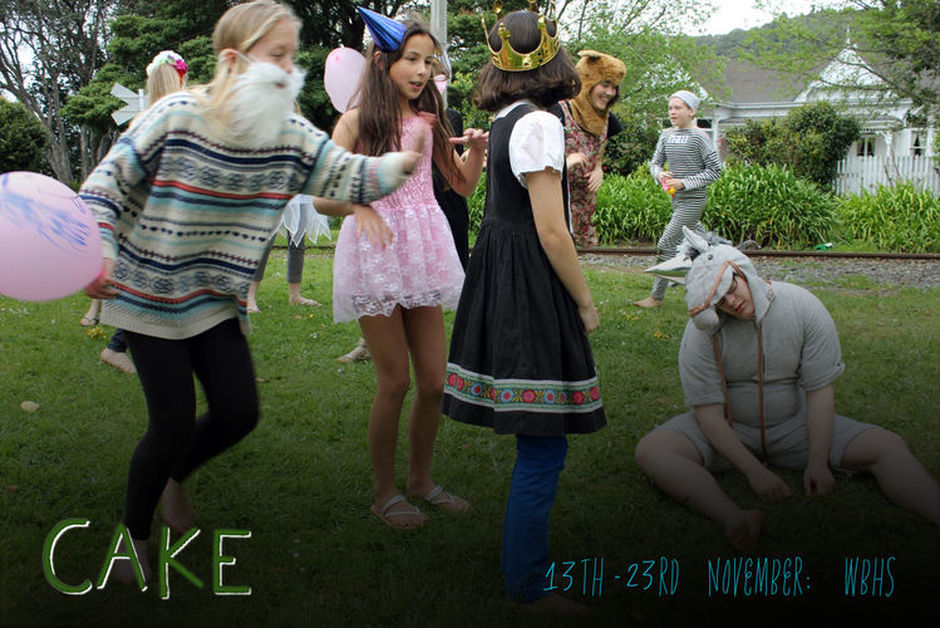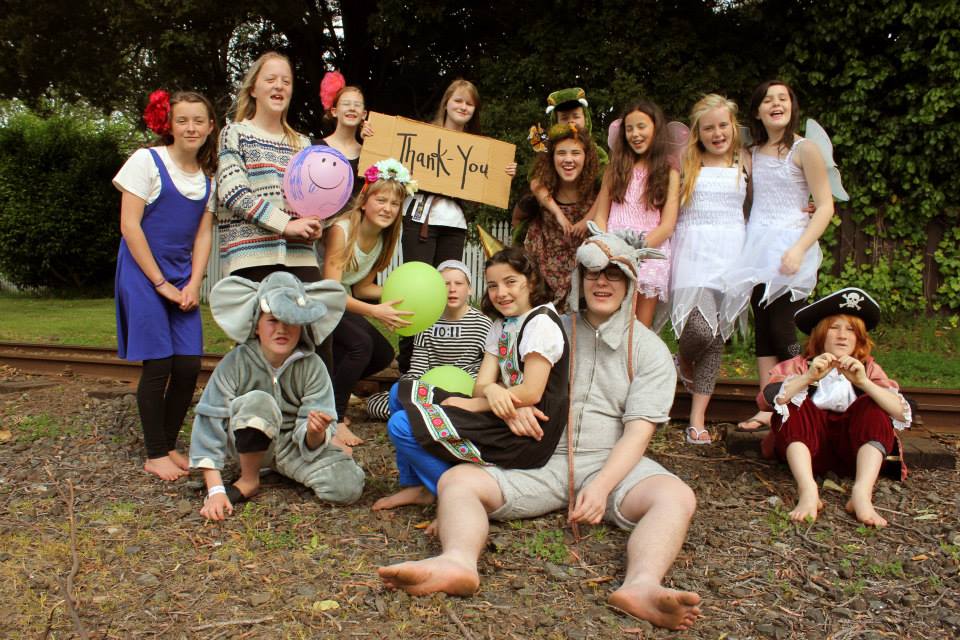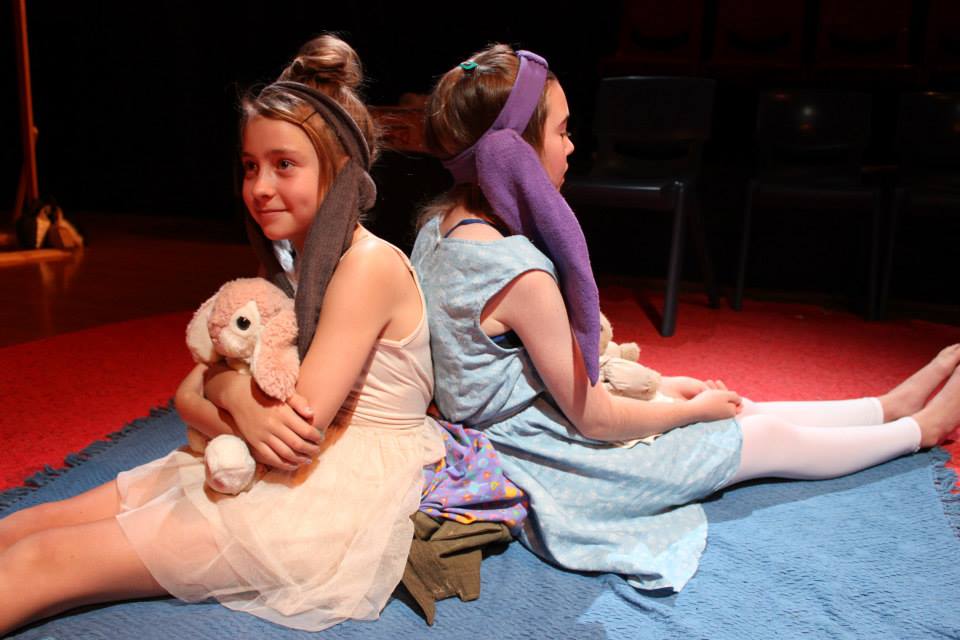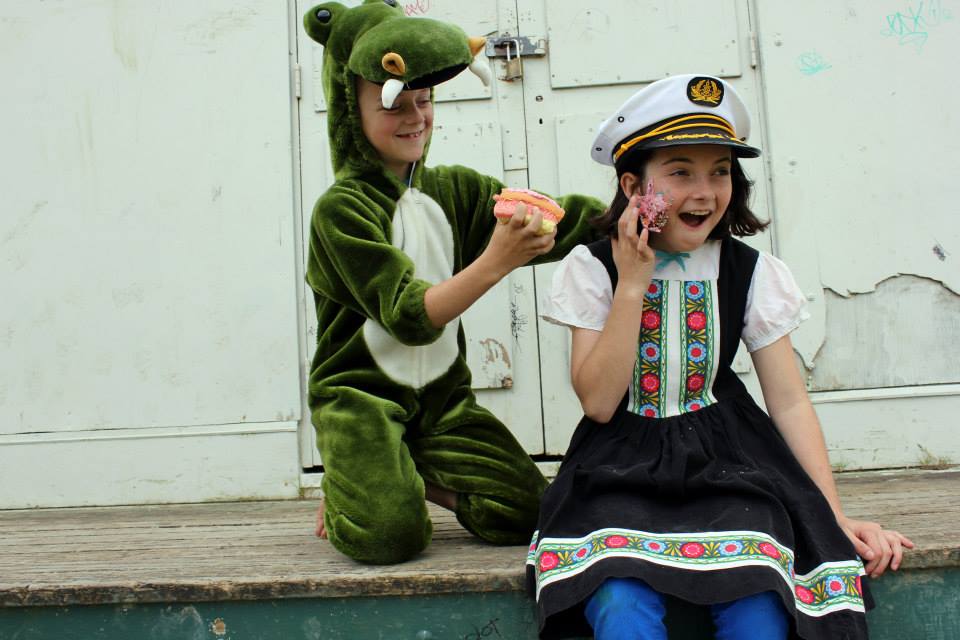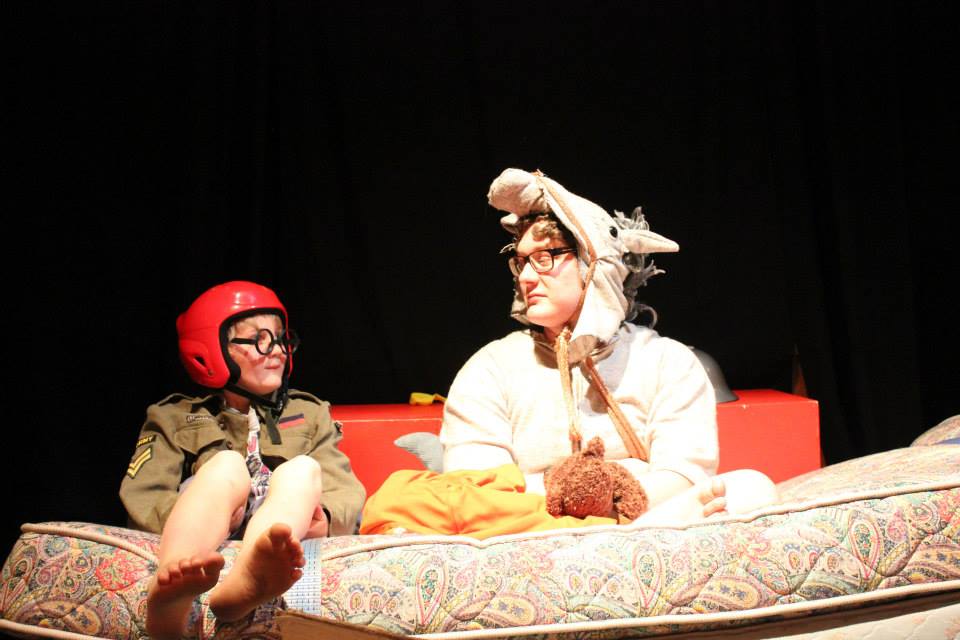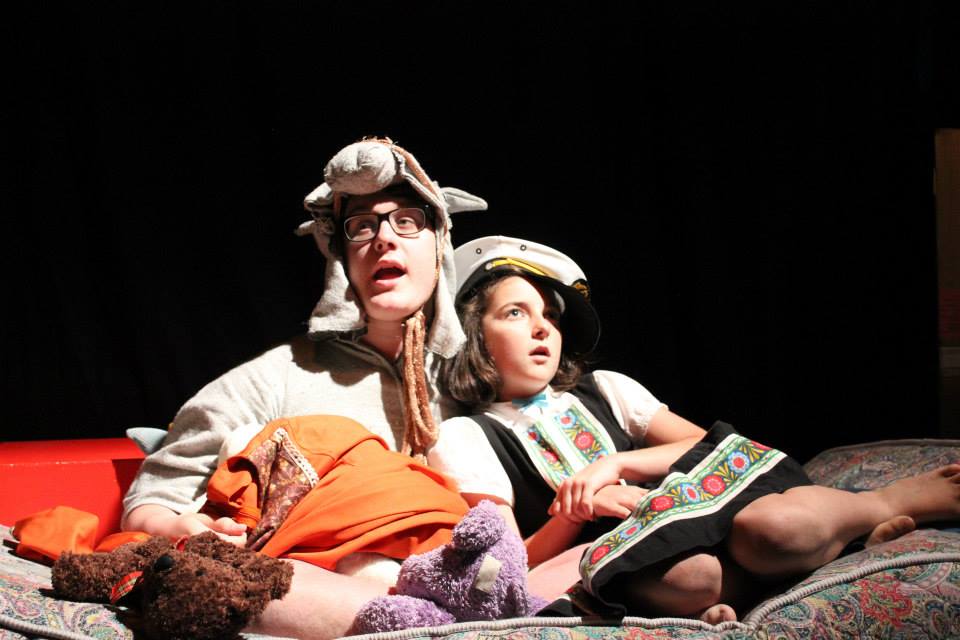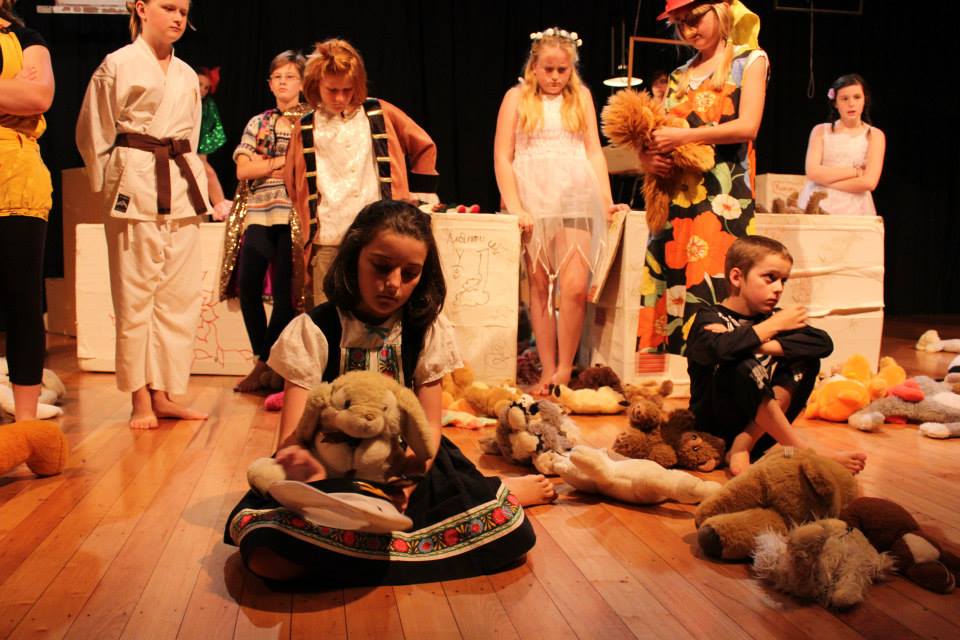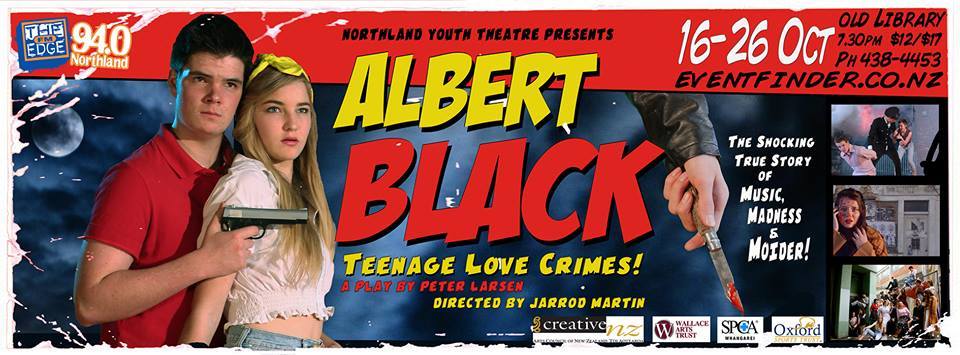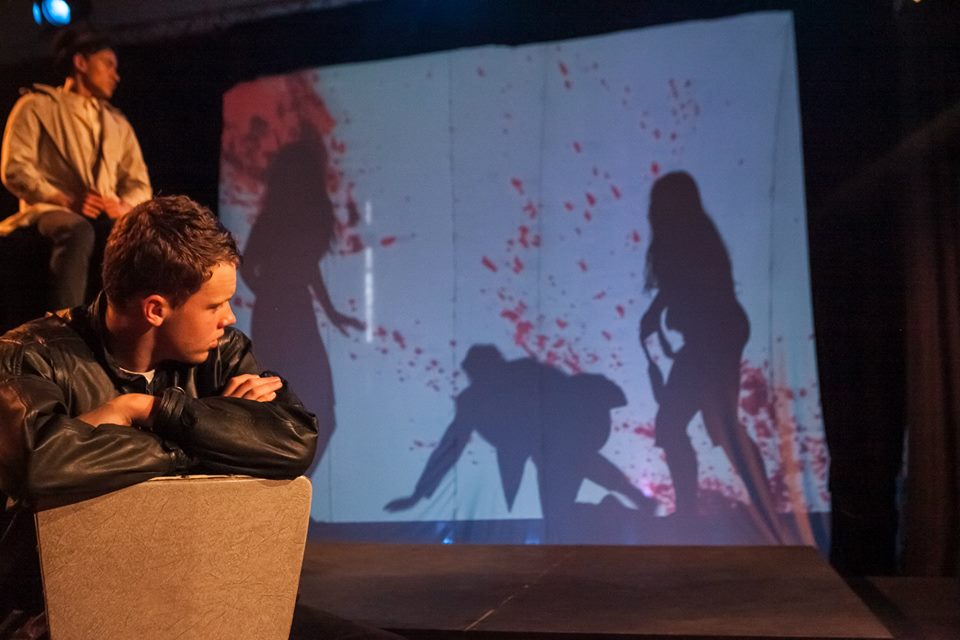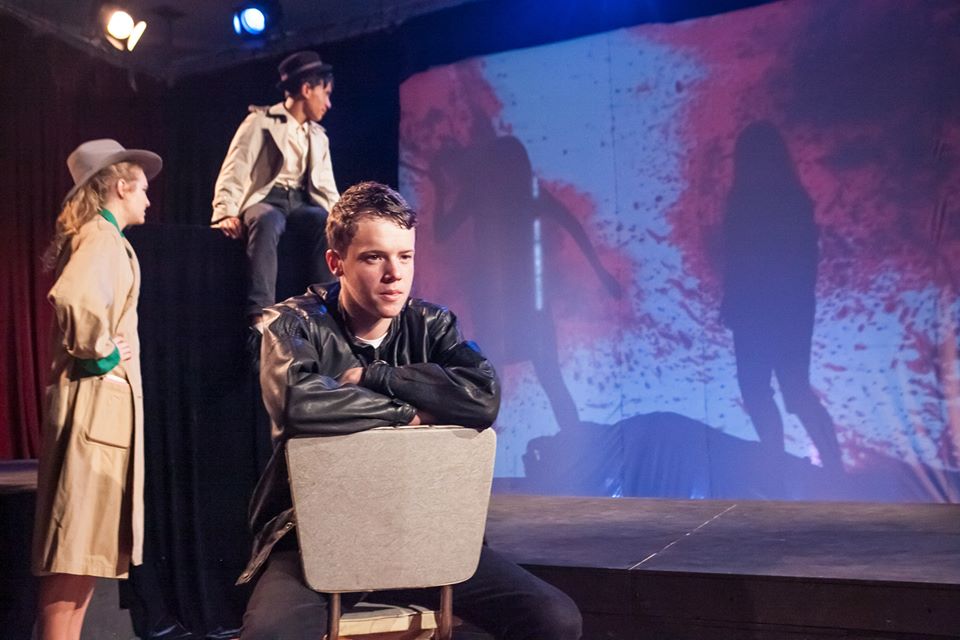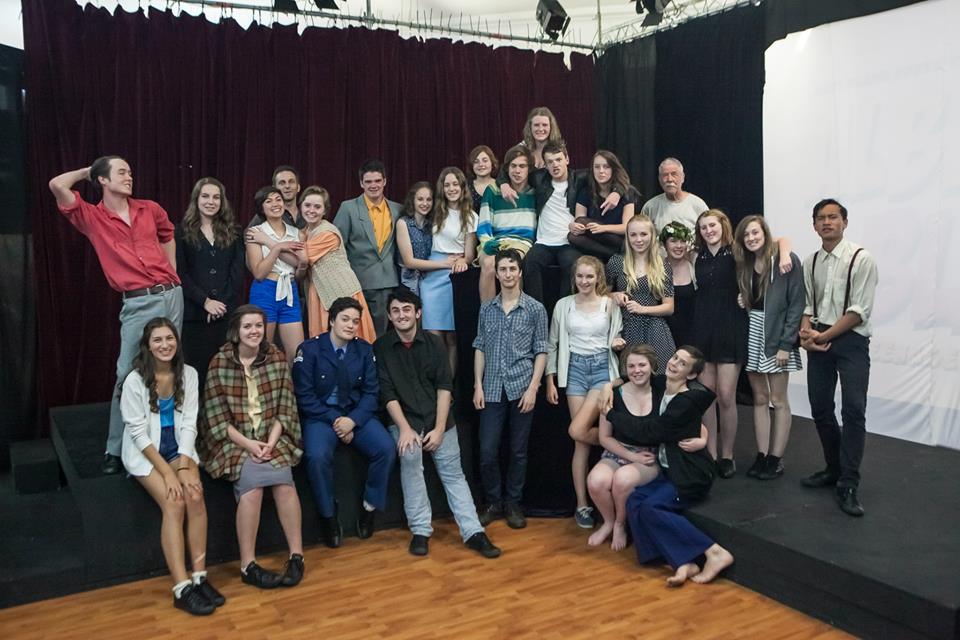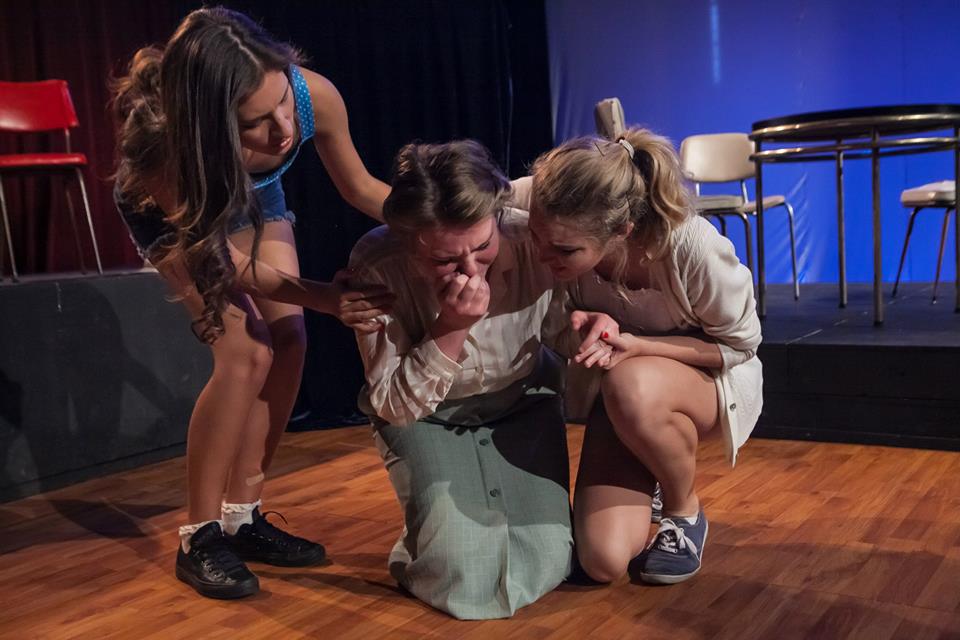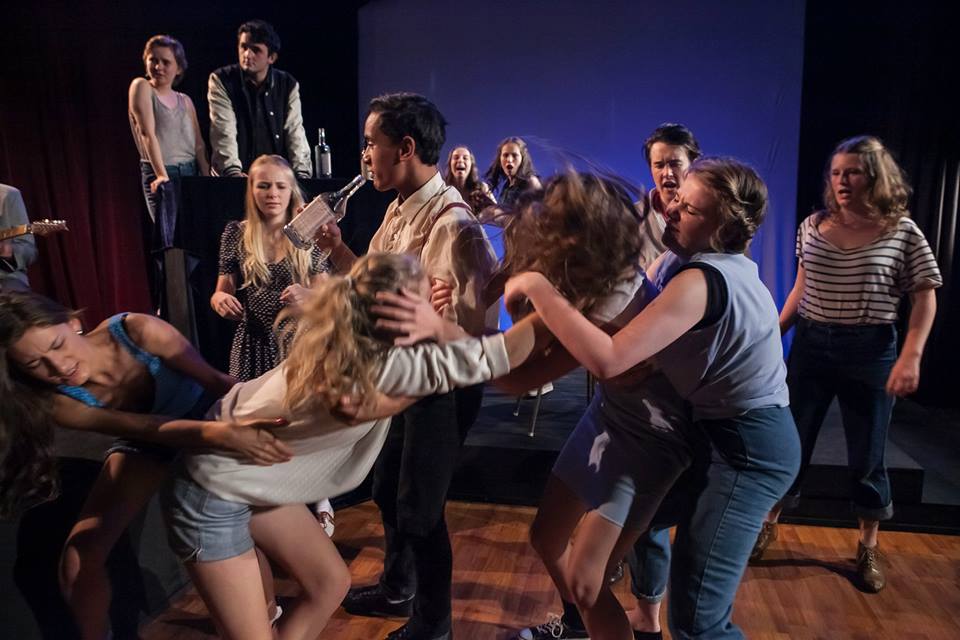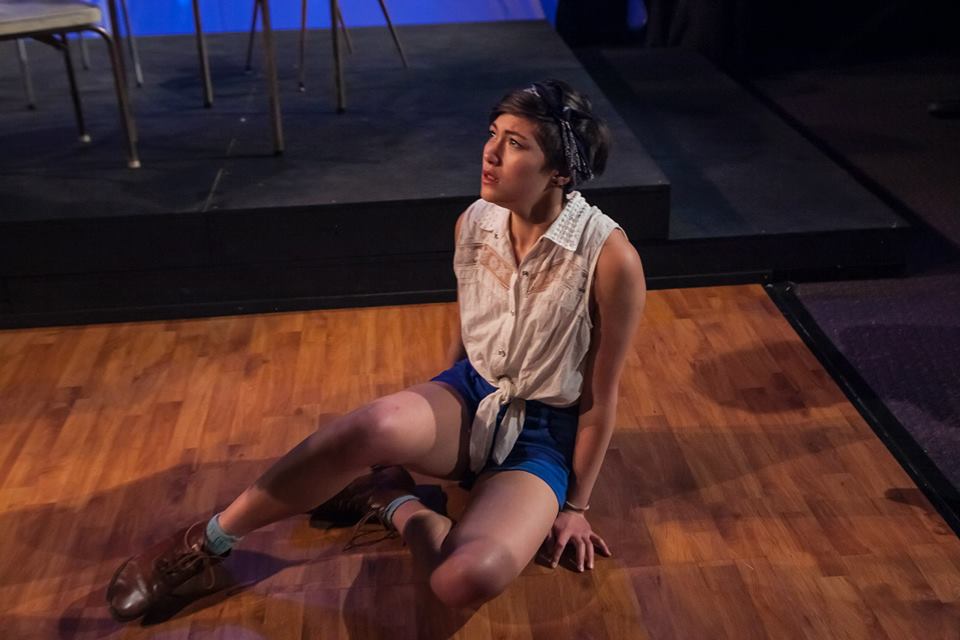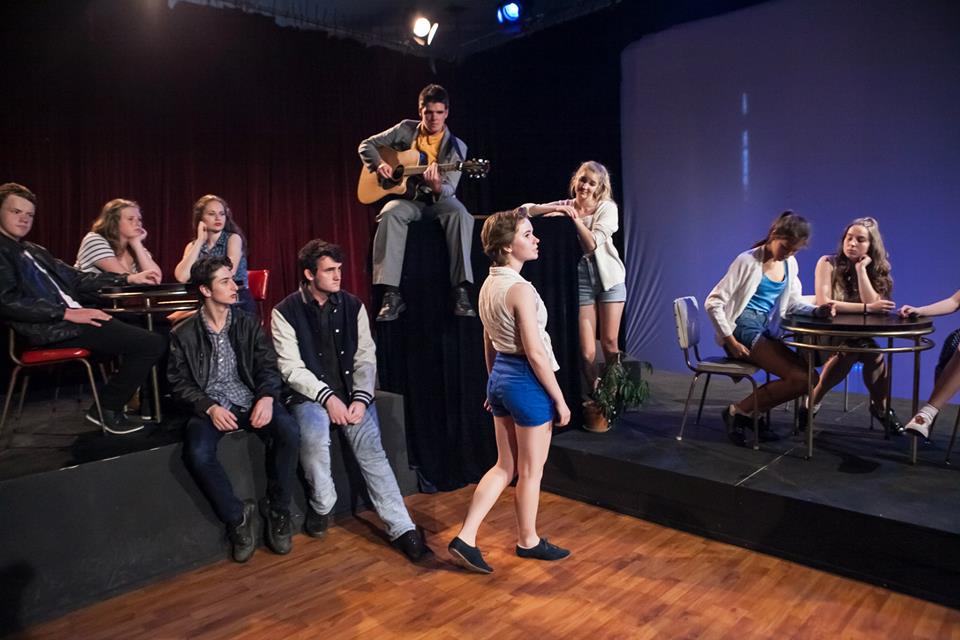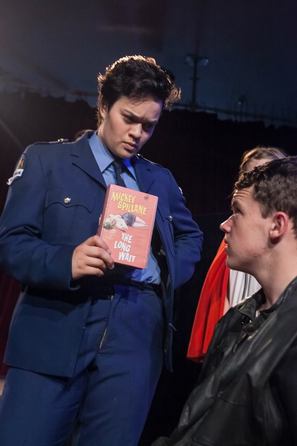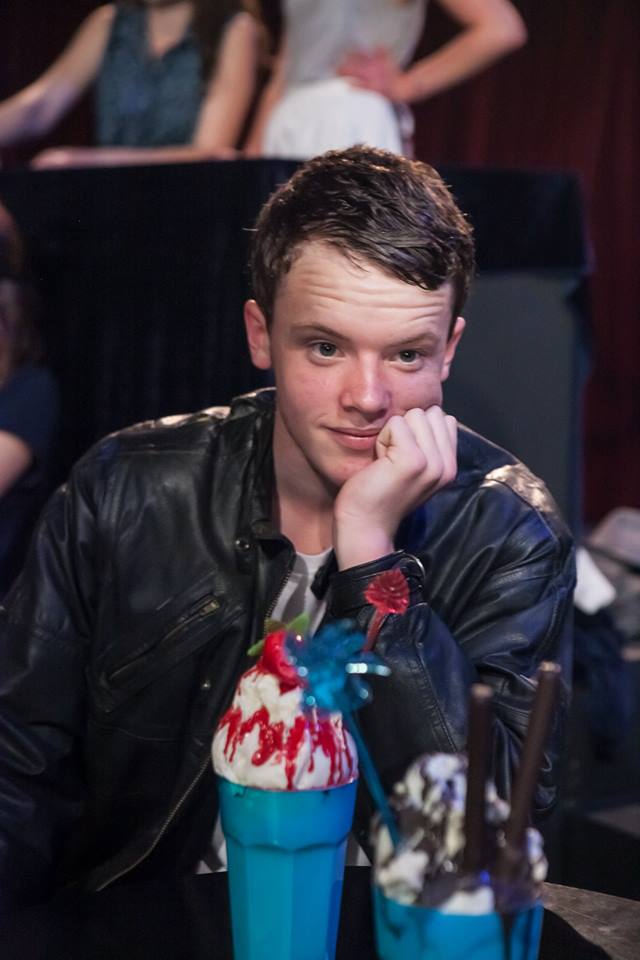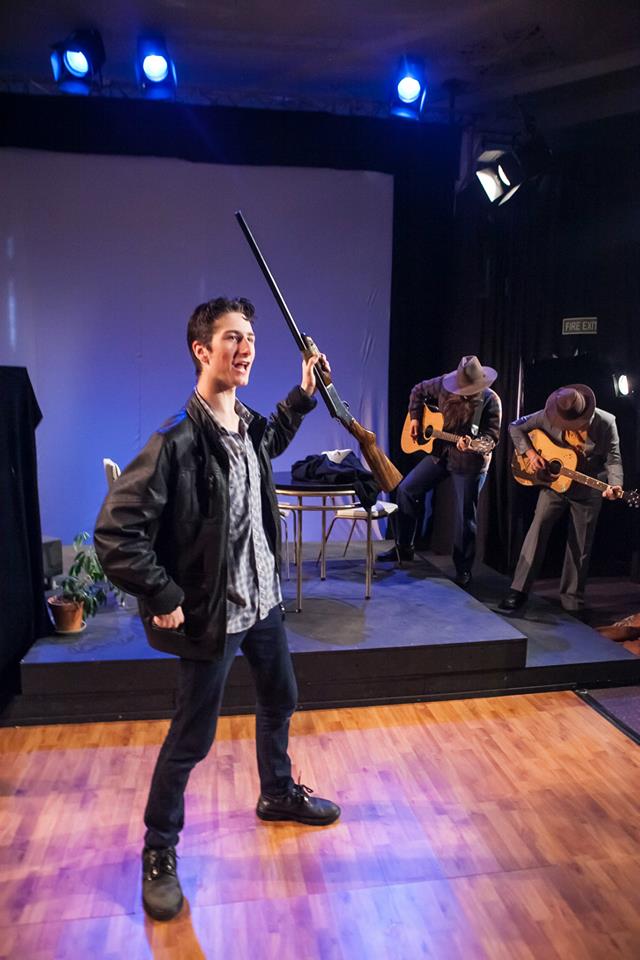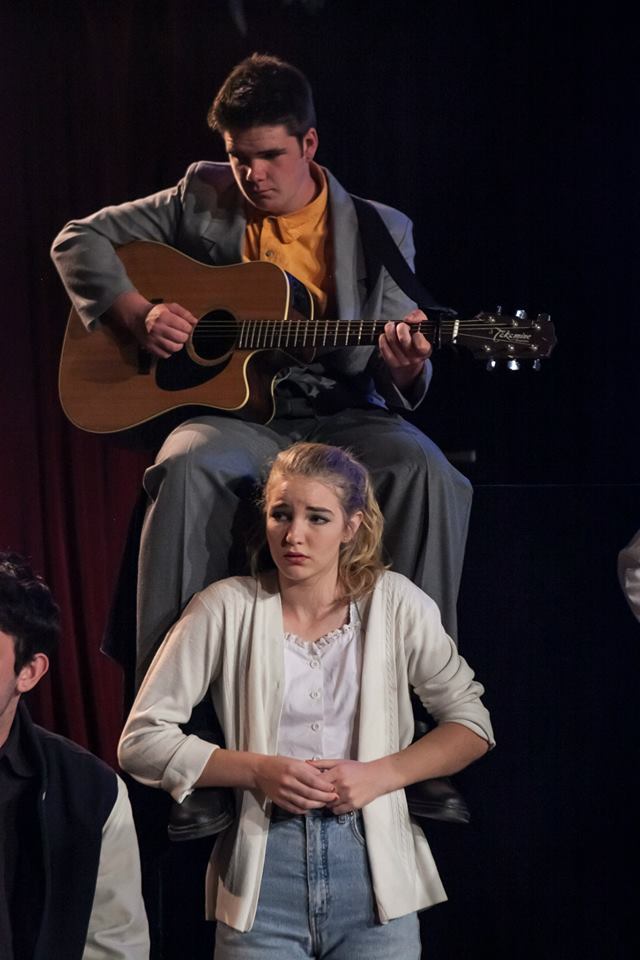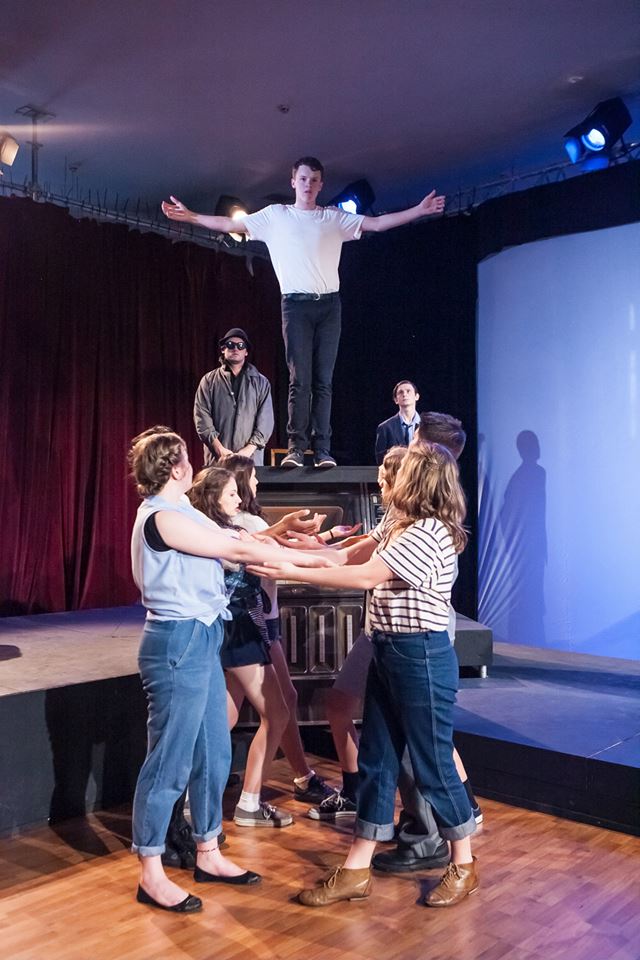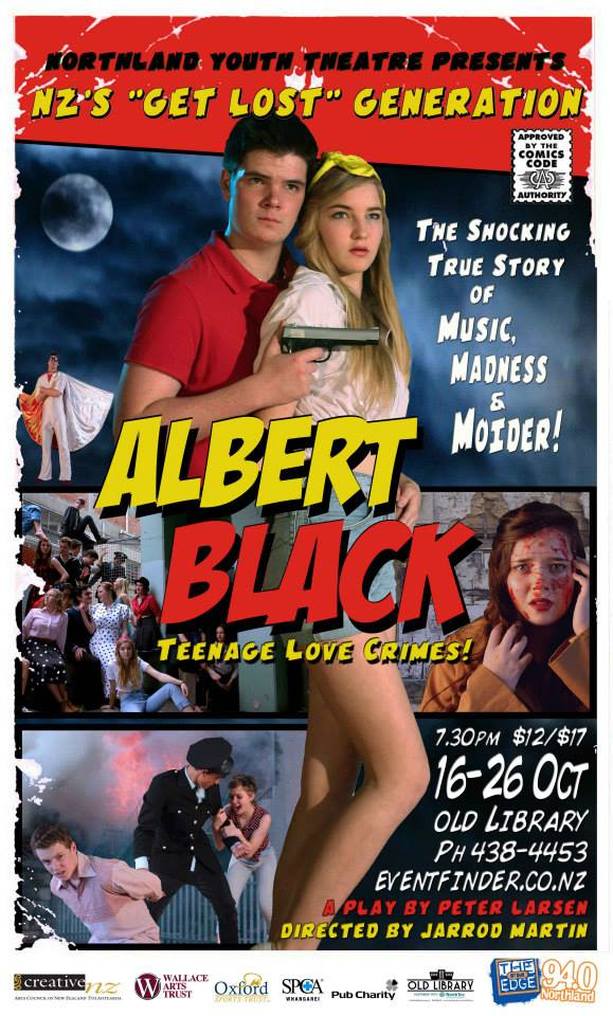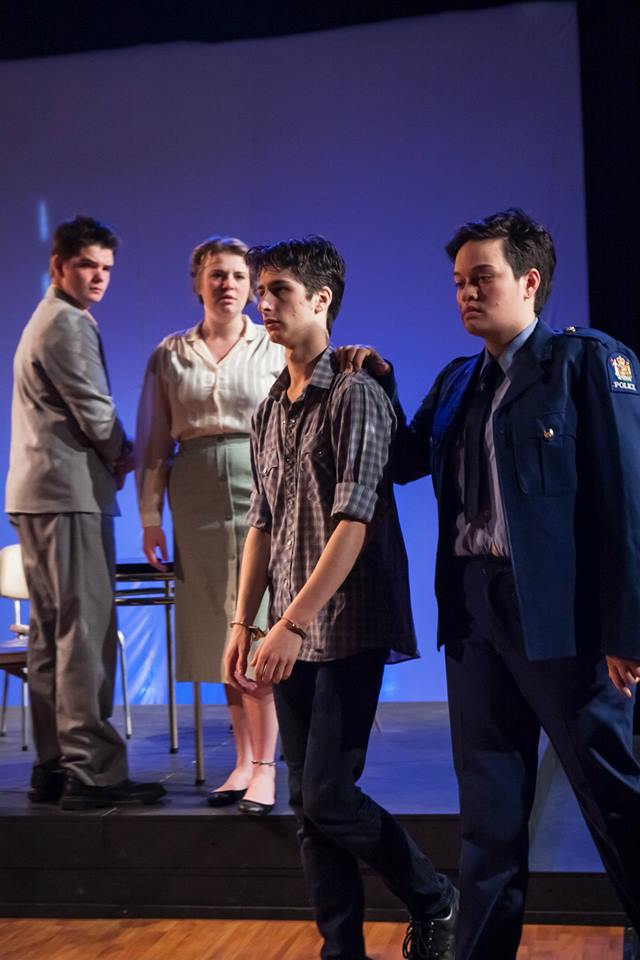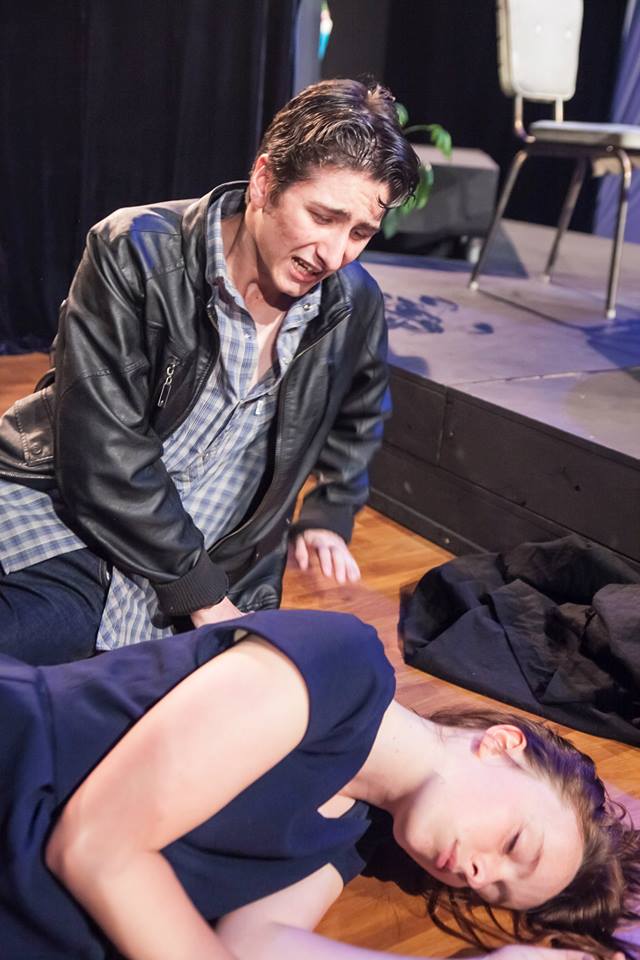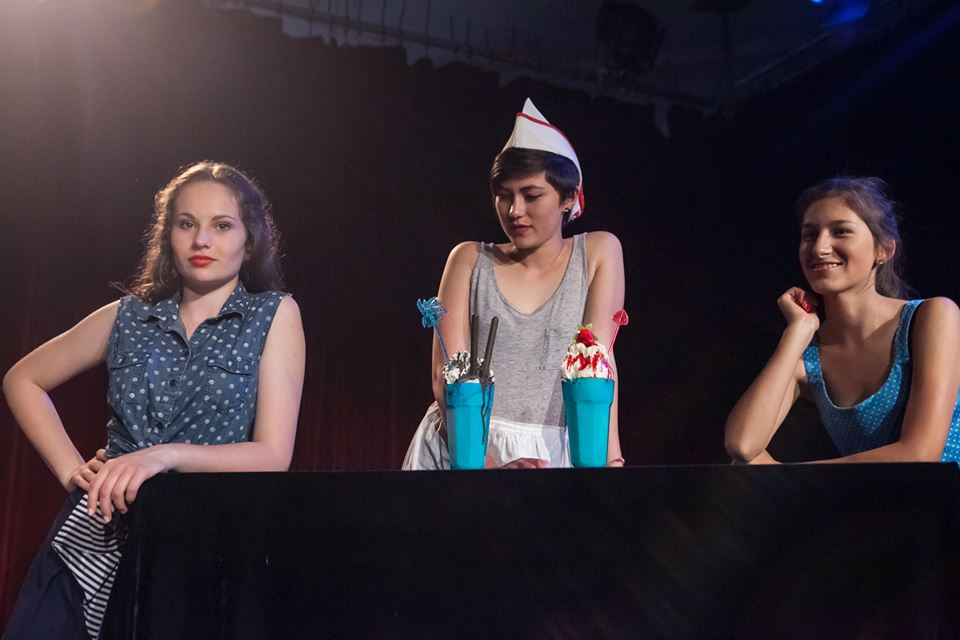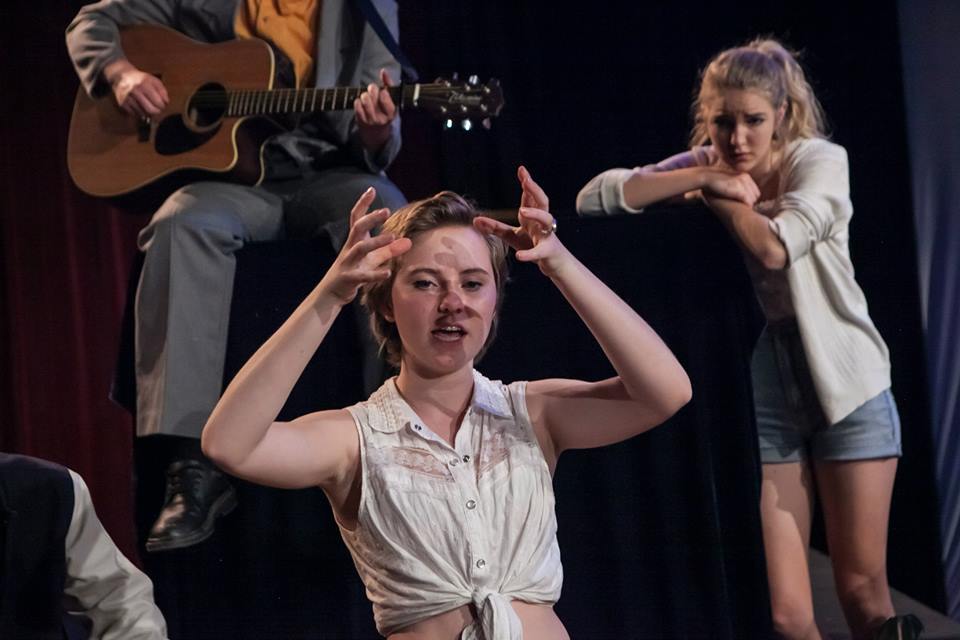NYT in 2013
THE ODYSSEY
NYT’s trademark menagerie of youth, joy, surprise and carnival to provide a unique evening of excitement and intrigue.It’s a story about getting stuck, trying to get home, looking for your parents and meeting your destiny. It's packed with seductive sirens, many faced beasts, one eyed monsters, capricious gods, shipwrecks, prophecies, battles, muses, feasting, bicycles and BBQs. It’s going to be an Odyssey.
CAKE
|
Turn around, touch the ground, bags not it!
Genevieve is turning eleven. Genevieve is having a party. There is also a donkey at this party (played by Anthony Crum from NYT’s Senior company; Thinning, Quarry, and Odyssey) who leads us through the complex world of Genevieve's special day - through a landscape of games and gifts - exploring transformation and solitude, friendship and family, and the multitude of often unnoticed, tiny acts of courage and connection that make us who we are. In a world of transforming boxes, populated by loved and threadbare soft toys, strange and surprising friends, amidst the shredded paper and explosion of teddies, a party for all time will occur. We know there'll be treasure hunts and games with claps. Little brothers will destroy, and big sisters will annoy. Tantrums, toothaches, songs and farewells. You'll hear secrets, pop balloons, pass the parcel, help choose the perfect gift, and tell everyone your birthday party was better. The NYT 2013 Junior show is a raucously exquisite celebration of achieving age, eating what you like because you can, playing games like life, living life like a game, and making friends who didn't exist until the game started. Devised with a magnificent cast of 17 young, local theatre makers (aged 8 -20), led by Katy Maudlin & accompanied by the enchanting musical stylings of Tomasin Fisher-Johnson, Cake is voiced and expressed by the unique talents of our local youth, a vibrant explosion of their existence, and it's entanglement with the lives of everyone. Come along, blow out the candles, make as many wishes if you like, and see the the children putting the tail on the donkey, and the donkey tailing the children! Cast: Tove Petersson, Samara Mase, Meg & Zoe Robinson, Lily Hallett- Pullen, Jasmine Fisher-Johnson, Cajun, Florence & Zelde Morrison-Smith, Genghis & Romane Gardes, Brodie & Lochie McIntyre, Benjamin Nagel, Arnika Wickham, Anna Mason & Anthony Crum. With music by Tomasin Fisher-Johnson. |
ALBERT BLACK - Teenage love crimes
|
Northland Youth Theatre Presents Albert Black – Teenage Love Crimes.
“Young Love will Kick the chairs about and like a rush-fire burn” – J.K. Baxter Blame slick-back heart throb James Dean. Blame Mickey Spillane. Blame rock and roll. New Zealand in the 1950’s was on the cusp of a cultural transformation that was sweeping the world. In the aftermath of world war, the USA’s influence on the South Pacific was irresistible. Brassy, consumerist America had unleashed new appetites in a land of conservative Protestant Kiwis. The first to wholeheartedly adopt American Influences were a new and vivacious subculture that would go on to remake our world –Teenagers - and their unbound energies triggered a moral panic that would end at the gallows. Based on actual characters and events, Albert Black is a new play chronicling the fiery emergence of New Zealand’s first teenagers. It’s a Kiwi Rebel Without A Cause,complete with ducks-arse haircuts, misguided love, rock’n’roll, and a cult built around the banned pulp fiction of Mickey Spillane. Vivid as a comic book, the playfollows Belfast immigrant Albert Black – a frowned on Bodgie – as he scrapes by in the conservative and surreal New Zealand of the mid-fifties... a country in the grip of a teenage crime wave whichcould have been ripped from the pages of one of Spillane’s hard boiled paperbacks: the Parker-Hulme murder, the Milkbar Murder and the notorious Jukebox Killing that leads Albert to his tragic demise. Written by local playwright Peter Larsen for a large castat NYT, the play explores the anarchic rise of the teenager in New Zealand culture. “Before the advent of the teenager there was only childhood and adulthood,” explains Larsen. “Then child labour law reform and extended education created a new generation- one with a child’s responsibilities but adult urges. Society struggled to integrate and understand this new cultural phenomenon, and still does to this day.” Featuring 22 actors aged 14-17, and directed by Jarrod Martin, the play is ultimately a celebration of how teenagers remade our world. Albert Black is the story of NZ’s first teenagers as they struggled to find (often with disastrous consequences) their place in our society; a place where every young person can now enjoy freedom and independence. And Albert Black asks the perennial and subversive question: why should any teenager submit to the authority of adults? The Cast: Asti Smith, Austyn Mills, Ava O’Brien, Bella Adams, Breanna Worthington-Gibbs, Carlos Wirihana, Chelsea Farr, Chris King, Cinta Damerell, Ebony Fairclough, Ella Thomas, Frankie Mulcare, Jack Robinson, Jasmine Monaghan, Jodi Katsoolis, Kaylee Powell, Lani McNamara, Michael Hemming, Rebeca McKean, Tegan Payne, Trent Reyburn & Vanessa Shaw. |
REVIEWED - by David Stevens, 20 Oct 2013
The last two major productions of the Northland Youth Theatre have been remarkable: epic journeys through lands of myth, metaphor and magic. The latest offering, Peter Larsen's Albert Black, is a dramatic change of gear. If The Blue Airplane and The Odyssey were banquets for the senses, Albert Black is food for the brain.
Sensory perceptions still abound. In this clever Jarrod Martin-directed production (in the now recognisable NYT house style) there are numerous ‘coups de theatre' but the subject matter and the territory in which this play works is both more familiar and more rigorous than the two previous excursions.
Albert Black was a teenage immigrant from Northern Ireland – a Ten Pound Pom – who arrived in New Zealand in the 1950s and was hanged for murder. (Larsen's play is based on Redmer Yska's All Shook Up: the Flash Bodgie and the Rise of the New Zealand Teenager in the 1950s.)
When I first heard it was to be the next NYT production, I raised several eyebrows. The subject matter seemed unlikely for a bunch of Whangarei kids and it seemed (to me) to be a small, intimate tale, with little opportunity for the large cast that the NYT demands.
But Peter Larsen saw much more than I did. He saw both the epic and the relevance in the story, and the often splendid result is evident for all to see.
Albert Black isn't only about Albert Black. He is the central character and guides us through the world that he and we encounter, but more as a commentator than a participant and his most intimate (and touching) relationship is with a hedgehog. The play is really about a generation of Kiwi teenagers, the rebellious Bodgies and Widgies who are the vanguard of the coming revolution of the young that began with rock'n'roll and would sweep the world in the Sixties.
I suppose the word of the evening is nihilism, and we are introduced to it with Albert's arrival in NZ, when he is stopped by immigration officials and “the rules of behaviour” expected of him are explained. Immediately, there is conflict. Albert is addicted to Mickey Spillane novels but those novels are banned in NZ.
But Mickey Spillane – or the attitudes his books represent – are the subtext of the evening: music, madness and “moider.”
As to music, I shall be quite surprised if Austyn Mills' terrific song (in the role of Rainton) is the last time he sings in public. Madness? Well, the collective craziness of teenagers, at least. Which leaves “moider.”
There are three “moiders” in the course of the play, and the structured, conformist world that the immigration officials represent is almost immediately shattered by the first of them – the Parker-Hulme case, when two teenage girls, arguably lesbian lovers, killed the mother of one of them.
The murder itself is most shockingly shown, an extraordinary riot of blood, and the inclusion of this tale is a master-stroke, setting up the essential nihilism of the youth among which Albert Black has found himself.
Of course, it moves the focus of the play from Albert to others, but that gives Mr Larsen the freedom to explore the conflict between that nihilism and the official attempts to eradicate it, or at least constrain it. The young people he gives us as characters are an engaging lot, and none of their antics are particularly shocking to us who have come out the other side of this revolution that they unwittingly started. These teenagers drink and copulate and generally give the two finger salute to their elders – whom they don't see as their betters, simply as adults mysteriously dictating their behaviour. Teenagers were ever thus; tatts and piercings are simply the more modern (if already slightly dated) symbols of the age-old rebellions of the young.
In this generational sweep a few characters stand out, but there is no sense of imminent danger to any of them, except that relentless battle with authority. So when young Freddie Foster engagingly plans his own little coup to win back his girl we already guess that it is possibly not the brightest plot ever hatched, but it is quite shocking when the result is – moider.
Well death, anyway. As shown by Mr Larsen, the last thing Freddie intends is that anyone, especially his girl-friend, shall die, but almost inevitably, someone does. All for love, because part of the key to it is Ebony Fairclough's lovely performance as Sharron, the girl-friend, making Freddie's desire to win her back completely understandable.
Freddie may be one of the triumphs of the evening. Another Ten Pound Pom, already married (in Australia) and thus a potential bigamist, Freddie is so likeable – and in Michael Hemming's wonderful performance so pumped up with his own enthusiasm – that we don't want his plan to go wrong even though we suspect it will. Yet there is no sentimentality here. Freddie's back-story in Australia is presented with clarity and honesty, and the loss of this then pregnant wife's child is another tiny – but quite shocking – moment, in a play filled with tiny, but shocking moments.
The death, when it happens, is tiny – almost unnoticeable except for the loud crack of a gun – and shocking, both to us and to Freddie.
So what has been a fairly riotous, if at times quite violent, first act ends with tragedy and the potential victory of authority. The second act moves into much darker territory because it deals with – as it must – retribution.
I don't want to give the play away to you, so I'll just say that there are moments in the second act that are deeply disturbing. I shall not easily forget Freddie's mother, who flies to New Zealand to try and save her son from the gallows: her interview with the Minister of Justice, her pleading for Freddie's life, him justifying Freddie's death. It is awful in the best sense of the word. And if you think that this is territory beyond the acting skills of a group of untrained teenagers, then Tegan Payne's heartrending cries – “He is my son” – should make you rethink your attitude.
There is an inevitably about the rest of the play. We know, because Albert told us at the very start of the play, that he will die. What we have been shown are the processes that lead both to his crime and to the punishment that awaits him.
Once Freddie is gone, the way is clear to Albert's ending. His friendship with Oswald, the hedgehog, is another small, if unlikely, triumph and provides a moment of violence that is almost upsetting. By comparison, the murder of Johnny McBride, by Albert, is almost casual, almost understandable, and then the processes take over again: justice in retribution mode.
I might wish for more of the victim's curious back-story, but Trent Reyburn gives us all that is necessary: a disturbed youth given too easily to violence and bullying, and the effect is frightening in the way that it may have frightened Albert.
The condemned Albert is weighed daily, and again it's awful because we know that one day he won't be weighed anymore. I might have wanted more interaction between Albert and the other prison staff, but maybe that's me being sentimental, because Frankie Mulcare is almost comically disengaged, more intrigued by Albert's inevitable weight loss, and Asti Smith, as the representative of the prison guards, strikes a terrific balance between authority and consideration.
The execution, when it happens, is filled with the contradictions of the evening, because the actor's physical safety relies on others – somehow making it a community experience, which, of course, capital punishment inevitably is.
I could yearn for Albert's attitude to his own death to be explored in greater depth, but maybe that is the sentimentalist in me again, because Albert goes to the gallows wishing his executioners a Merry Christmas, which seems entirely in keeping with his character as presented here. And I have to take my hat off to Chris King, as Albert, who holds the evening together in a completely charming performance – which is his first ever role. More experienced actors have better technique but few will have Mr King's disarming honesty and affability, nor the irony of it, because we cannot help but like the murderer.
I don't want to suggest the play is perfect; I'm pretty sure it is a work-in-progress if only because of the size of the cast. Few professional theatres will be able to provide such numbers and it deserves a future. It may not yet be the play it will become, but already it is an event of some importance, because Mr Larsen has staked out a powerful and provocative territory, filled with felicities and triumphs. Nor do I want to diminish the work of Jarrod Martin in any way, the captain of the volatile team, when I say that the stars of the evening are the cast.
I am always a bit conflicted when writing about the NYT. I try not to make allowances for the fact that they are not professional actors, and yet I must, because they are not. These are not even amateur actors; they are kids embarked on a (multi) school project with particularly demanding disciplines. The show must go on and the public must get its money's worth. What is constantly surprising to me is the level of their success.
With Albert Black, these young people have been given a formidable (some might say impossible) task and have risen to the challenge like champions. If I have singled out a few, it is because they are representative of the energy and enthusiasm of the collective.
We are lucky to have that collective, and what I always get from the NYT is the sense that, if these kids have anything to do with it, the future is in safe hands.
The last two major productions of the Northland Youth Theatre have been remarkable: epic journeys through lands of myth, metaphor and magic. The latest offering, Peter Larsen's Albert Black, is a dramatic change of gear. If The Blue Airplane and The Odyssey were banquets for the senses, Albert Black is food for the brain.
Sensory perceptions still abound. In this clever Jarrod Martin-directed production (in the now recognisable NYT house style) there are numerous ‘coups de theatre' but the subject matter and the territory in which this play works is both more familiar and more rigorous than the two previous excursions.
Albert Black was a teenage immigrant from Northern Ireland – a Ten Pound Pom – who arrived in New Zealand in the 1950s and was hanged for murder. (Larsen's play is based on Redmer Yska's All Shook Up: the Flash Bodgie and the Rise of the New Zealand Teenager in the 1950s.)
When I first heard it was to be the next NYT production, I raised several eyebrows. The subject matter seemed unlikely for a bunch of Whangarei kids and it seemed (to me) to be a small, intimate tale, with little opportunity for the large cast that the NYT demands.
But Peter Larsen saw much more than I did. He saw both the epic and the relevance in the story, and the often splendid result is evident for all to see.
Albert Black isn't only about Albert Black. He is the central character and guides us through the world that he and we encounter, but more as a commentator than a participant and his most intimate (and touching) relationship is with a hedgehog. The play is really about a generation of Kiwi teenagers, the rebellious Bodgies and Widgies who are the vanguard of the coming revolution of the young that began with rock'n'roll and would sweep the world in the Sixties.
I suppose the word of the evening is nihilism, and we are introduced to it with Albert's arrival in NZ, when he is stopped by immigration officials and “the rules of behaviour” expected of him are explained. Immediately, there is conflict. Albert is addicted to Mickey Spillane novels but those novels are banned in NZ.
But Mickey Spillane – or the attitudes his books represent – are the subtext of the evening: music, madness and “moider.”
As to music, I shall be quite surprised if Austyn Mills' terrific song (in the role of Rainton) is the last time he sings in public. Madness? Well, the collective craziness of teenagers, at least. Which leaves “moider.”
There are three “moiders” in the course of the play, and the structured, conformist world that the immigration officials represent is almost immediately shattered by the first of them – the Parker-Hulme case, when two teenage girls, arguably lesbian lovers, killed the mother of one of them.
The murder itself is most shockingly shown, an extraordinary riot of blood, and the inclusion of this tale is a master-stroke, setting up the essential nihilism of the youth among which Albert Black has found himself.
Of course, it moves the focus of the play from Albert to others, but that gives Mr Larsen the freedom to explore the conflict between that nihilism and the official attempts to eradicate it, or at least constrain it. The young people he gives us as characters are an engaging lot, and none of their antics are particularly shocking to us who have come out the other side of this revolution that they unwittingly started. These teenagers drink and copulate and generally give the two finger salute to their elders – whom they don't see as their betters, simply as adults mysteriously dictating their behaviour. Teenagers were ever thus; tatts and piercings are simply the more modern (if already slightly dated) symbols of the age-old rebellions of the young.
In this generational sweep a few characters stand out, but there is no sense of imminent danger to any of them, except that relentless battle with authority. So when young Freddie Foster engagingly plans his own little coup to win back his girl we already guess that it is possibly not the brightest plot ever hatched, but it is quite shocking when the result is – moider.
Well death, anyway. As shown by Mr Larsen, the last thing Freddie intends is that anyone, especially his girl-friend, shall die, but almost inevitably, someone does. All for love, because part of the key to it is Ebony Fairclough's lovely performance as Sharron, the girl-friend, making Freddie's desire to win her back completely understandable.
Freddie may be one of the triumphs of the evening. Another Ten Pound Pom, already married (in Australia) and thus a potential bigamist, Freddie is so likeable – and in Michael Hemming's wonderful performance so pumped up with his own enthusiasm – that we don't want his plan to go wrong even though we suspect it will. Yet there is no sentimentality here. Freddie's back-story in Australia is presented with clarity and honesty, and the loss of this then pregnant wife's child is another tiny – but quite shocking – moment, in a play filled with tiny, but shocking moments.
The death, when it happens, is tiny – almost unnoticeable except for the loud crack of a gun – and shocking, both to us and to Freddie.
So what has been a fairly riotous, if at times quite violent, first act ends with tragedy and the potential victory of authority. The second act moves into much darker territory because it deals with – as it must – retribution.
I don't want to give the play away to you, so I'll just say that there are moments in the second act that are deeply disturbing. I shall not easily forget Freddie's mother, who flies to New Zealand to try and save her son from the gallows: her interview with the Minister of Justice, her pleading for Freddie's life, him justifying Freddie's death. It is awful in the best sense of the word. And if you think that this is territory beyond the acting skills of a group of untrained teenagers, then Tegan Payne's heartrending cries – “He is my son” – should make you rethink your attitude.
There is an inevitably about the rest of the play. We know, because Albert told us at the very start of the play, that he will die. What we have been shown are the processes that lead both to his crime and to the punishment that awaits him.
Once Freddie is gone, the way is clear to Albert's ending. His friendship with Oswald, the hedgehog, is another small, if unlikely, triumph and provides a moment of violence that is almost upsetting. By comparison, the murder of Johnny McBride, by Albert, is almost casual, almost understandable, and then the processes take over again: justice in retribution mode.
I might wish for more of the victim's curious back-story, but Trent Reyburn gives us all that is necessary: a disturbed youth given too easily to violence and bullying, and the effect is frightening in the way that it may have frightened Albert.
The condemned Albert is weighed daily, and again it's awful because we know that one day he won't be weighed anymore. I might have wanted more interaction between Albert and the other prison staff, but maybe that's me being sentimental, because Frankie Mulcare is almost comically disengaged, more intrigued by Albert's inevitable weight loss, and Asti Smith, as the representative of the prison guards, strikes a terrific balance between authority and consideration.
The execution, when it happens, is filled with the contradictions of the evening, because the actor's physical safety relies on others – somehow making it a community experience, which, of course, capital punishment inevitably is.
I could yearn for Albert's attitude to his own death to be explored in greater depth, but maybe that is the sentimentalist in me again, because Albert goes to the gallows wishing his executioners a Merry Christmas, which seems entirely in keeping with his character as presented here. And I have to take my hat off to Chris King, as Albert, who holds the evening together in a completely charming performance – which is his first ever role. More experienced actors have better technique but few will have Mr King's disarming honesty and affability, nor the irony of it, because we cannot help but like the murderer.
I don't want to suggest the play is perfect; I'm pretty sure it is a work-in-progress if only because of the size of the cast. Few professional theatres will be able to provide such numbers and it deserves a future. It may not yet be the play it will become, but already it is an event of some importance, because Mr Larsen has staked out a powerful and provocative territory, filled with felicities and triumphs. Nor do I want to diminish the work of Jarrod Martin in any way, the captain of the volatile team, when I say that the stars of the evening are the cast.
I am always a bit conflicted when writing about the NYT. I try not to make allowances for the fact that they are not professional actors, and yet I must, because they are not. These are not even amateur actors; they are kids embarked on a (multi) school project with particularly demanding disciplines. The show must go on and the public must get its money's worth. What is constantly surprising to me is the level of their success.
With Albert Black, these young people have been given a formidable (some might say impossible) task and have risen to the challenge like champions. If I have singled out a few, it is because they are representative of the energy and enthusiasm of the collective.
We are lucky to have that collective, and what I always get from the NYT is the sense that, if these kids have anything to do with it, the future is in safe hands.
NYT FOUNDER Alan Palmer added this response:
Thanks for this review David. Great to see that NYT is receiving the critical attention it so deserves. Just picking up on you comment regarding the difficulty of knowing where to pitch your review due to the amateur status but, at times, "professional" presentation of the company. NYT in its inception was based on the British National Youth Theatre established by teacher Micheal Croft in the late 1950's. Micheal worked with his young actors through the summer holidays, every day. for long hours and drilled them to reach a standard that emulated the professional theatre. The performances were (and still are) presented in commercial West End theatres and he always insisted that the critics viewed them as they would professional productions. It is this rigour that develops the passion focus and discipline in the company to create quite remarkable theatre. The large cast epic is also a quality that is almost unique to Youth Theatre and sadly is the reason (as you point out) that so many of these wonderful productions are rarely if ever repeated. I am so thrilled to see that in recent times NYT has returned to its true purpose and is working to give the youth of Northland the voice they deserve. Well done Peter Larsen and the NYT Trust for having continued faith in the company.
Thanks for this review David. Great to see that NYT is receiving the critical attention it so deserves. Just picking up on you comment regarding the difficulty of knowing where to pitch your review due to the amateur status but, at times, "professional" presentation of the company. NYT in its inception was based on the British National Youth Theatre established by teacher Micheal Croft in the late 1950's. Micheal worked with his young actors through the summer holidays, every day. for long hours and drilled them to reach a standard that emulated the professional theatre. The performances were (and still are) presented in commercial West End theatres and he always insisted that the critics viewed them as they would professional productions. It is this rigour that develops the passion focus and discipline in the company to create quite remarkable theatre. The large cast epic is also a quality that is almost unique to Youth Theatre and sadly is the reason (as you point out) that so many of these wonderful productions are rarely if ever repeated. I am so thrilled to see that in recent times NYT has returned to its true purpose and is working to give the youth of Northland the voice they deserve. Well done Peter Larsen and the NYT Trust for having continued faith in the company.

